




































Guest expectations are changing, the benefits of upgrading your buildings internet:
Tourism Impact: Discerning visitors now view fast and reliable internet as a key factor when choosing accommodation.
Online Reviews: Guest feedback increasingly reflects internet performance, which can influence future bookings.
Real Estate Appeal: Buyers and tenants are seeking homes that support remote work — high-speed internet is now essential.
Holiday Letting Performance: Buildings with excellent internet tend to enjoy be er reviews, stronger brand recognition, and increased occupancy and revenue.
What internet upgrade options should I choose?
Option A: New CAT cabling to each room. Improves speed over traditional lines but doesn’t support gigabit performance. Installation is costly.
Option B: Wireless distribution across the building. Cost-e ective but unreliable due to interference from building materials and layout.
Option C: Fibre optic cabling to each apartment.
O ers excellent performance but comes with high installation costs and device upgrade requirements.
Option D – Recommended: Gigabit fibre delivered via existing TV coaxial cables. This solution:
o Delivers speeds up to 1.5 Gbps (1,500 Mbps).
o Involves minimal disruption and cost.
o Is fully managed and warranted.
o Has proven success with existing installations.



…with the flick of a switch our internet services moved to world class Gigabit capable internet. Resident and guest satisfaction has skyrocketed with the availability of fast, reliable industry leading internet, which allows our resort to include phone, video and streaming services never before offered. Absolutely Brilliant!”





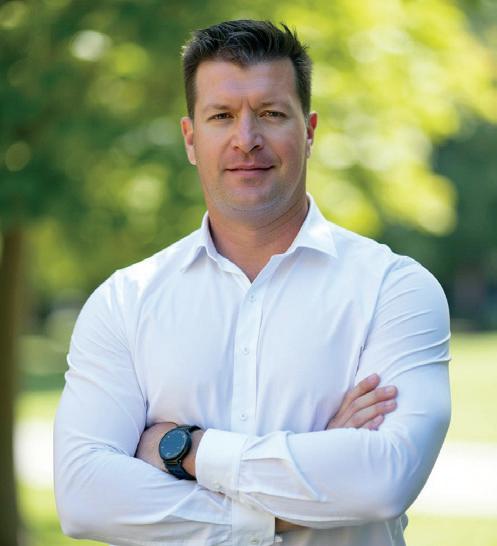







The views and images expressed in Resort News do not necessarily refl ect the views of the publisher. The information contained in Resort News is intended to act as a guide only, the publisher, authors and editors expressly disclaim all liability for the results of action taken or not taken on the basis of information contained herein. We recommend professional advice is sought before making important business decisions.
The publisher reserves the right to refuse to publish or to republish without any explanation for such action. The publisher, its employees and agents will endeavour to place and reproduce advertisements as requested but takes no responsibility for omission, delay, error in transmission, production defi ciency, alteration of misplacement. The advertiser must notify the publisher of any errors as soon as they appear, otherwise the publisher accepts no responsibility for republishing such advertisements. If advertising copy does not arrive by the copy deadline the publisher reserves the right to repeat existing material.
Any mention of a product, service or supplier in editorial is not indicative of any endorsement by the author, editor or publisher. Although the publisher, editor and authors do all they can to ensure accuracy in all editorial content, readers are advised to fact check for themselves, any opinion or statement made by a reporter, editor, columnist, contributor, interviewee, supplier or any other entity involved before making judgements or decisions based on the materials contained herein.
Resort News, its publisher, editor and sta , is not responsible for and does not accept liability for any damages, defamation or other consequences (including but not limited to revenue and/ or profi t loss) claimed to have occurred as the result of anything contained within this publication, to the extent permi ed by law.


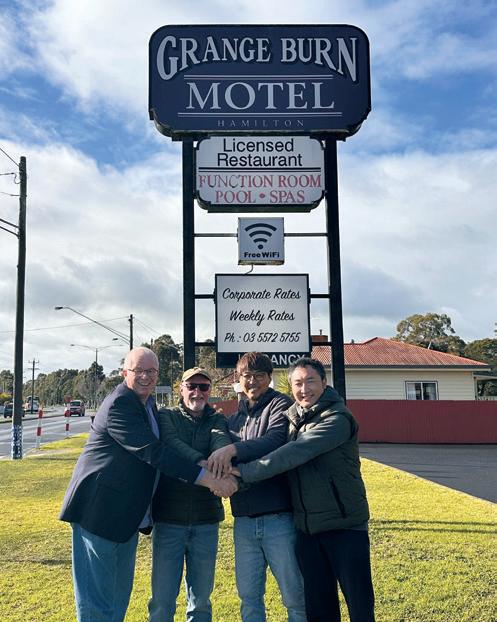

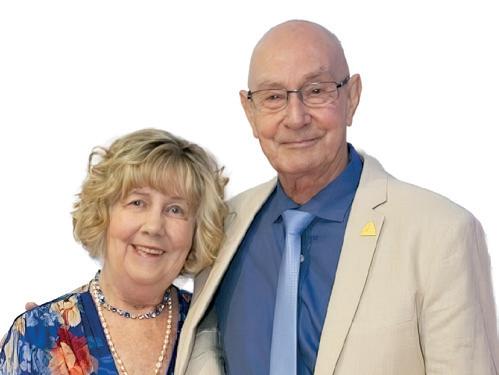


Advertisers and Advertising Agents warrant to the publisher that any advertising material placed is in no way an infringement of any copyright or other right and does not breach confi dence, is not defamatory, libellous or unlawful, does not slander title, does not contain anything obscene or indecent and does not infringe the Consumer Guarantees Act or other laws, regulations or statutes. Moreover, advertisers or advertising agents agree to indemnify the publisher and its agents against any claims, demands, proceedings, damages, costs including legal costs or other costs or expenses properly incurred, penalties, judgements, occasioned to the publisher in consequence of any breach of the above warranties. It is an infringement of copyright to reproduce in any way all or part of this publication without the wri en consent of the publisher. © 2025 Multimedia Publications Pty Ltd
Last month, I was reminded once again of the heart that sits at the centre of our industry. At the Knowledge Bank Charity Gala in Brisbane, I heard about an initiative that truly struck a chord: the Live Like Her Challenge. By spending just one night living in your car, you help fund The Forgotten Women’s mission to provide safe housing for women over 55 who are experiencing, or at risk of, homelessness.
It is sobering to know that more than 1000 women over 55 in Greater Brisbane, and around 200 on the Gold Coast, are currently facing these hardships. Yet it was also inspiring to see our industry rally together, raising well over $200,000 for several charities and turning awareness into real action. It reminded me that













Mandy Clarke, Editor editor@resortnews.com.au
hospitality and tourism are not only about business—they are also about people, community, and making a difference.
That same sense of resilience and determination runs through the stories in this issue. We meet Syd Douglas of Ras360 Property



Solutions, whose journey from rugby to management rights brokerage shows how discipline and adaptability can open new doors. We also catch up with Jess and Hamish Watts at Glen Eden Beach Resort, a couple bringing fresh vision and energy to the Sunshine Coast.
It has also been a big month for ARAMA’s political advocacy, pushing forward important conversations for our sector. Read all about the association’s efforts.
This is shaping up to be an exciting month. I will be attending the ARAMA TOP Awards in Brisbane to celebrate the very best in our management rights community. Then I am off to NoVacancy 2025 in Sydney, where I will be hosting our “Meet the Editor” sessions. These one-on-one conversations are a new and exciting addition, and I cannot wait to hear your stories in person.
Looking ahead, our October edition will mark a milestone— the 350th print edition of Resort News. In today’s digitally driven world, it is an incredible achievement for a monthly print magazine to still be published, read, and loved. As I prepare for our 30-year anniversary edition in November, leafing back through old magazines has been a nostalgic reminder of how far both Resort News and our industry have come. It is also a chance to reflect on the stories, people, and ideas that have kept this community moving forward.
In the meantime, I hope this issue brings you fresh ideas and inspiration, along with the reminder that even the smallest actions can help build stronger businesses, stronger communities, and stronger futures.
Warm regards,
Mandy Clarke, Editor, Resort News




Australia’s foremost management rights sales agency, with 15 years of expertise and a dynamic team of over 15 agents strategically positioned along the vibrant expanse of the east coast, we bring unparalleled expertise and dedication to every client interaction. mrsales.com.au | 1300 928 556
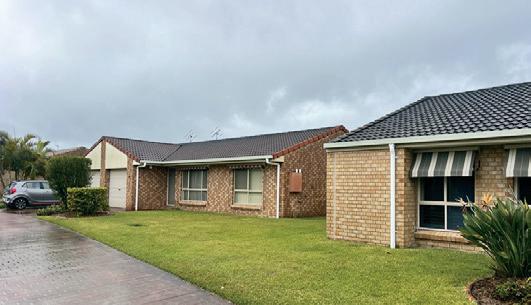



in accommodation sales National coverage and expertise in the sale of motels, hotels, caravan parks, pubs & MHEs tourismbrokers.com.au | 1300 512 566



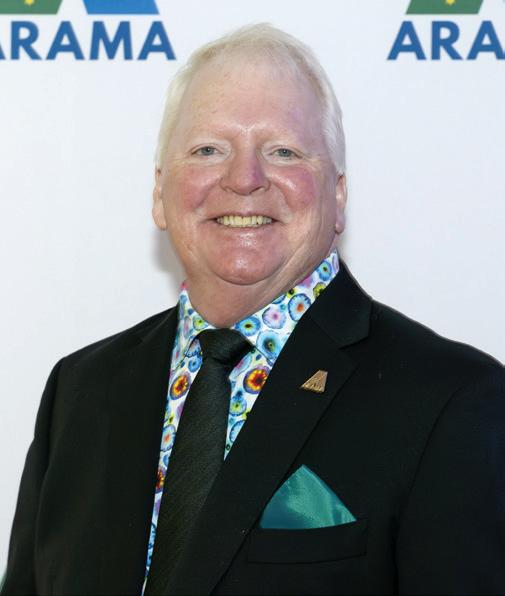
By Trevor Rawnsley, CEO, ARAMA
Our amazing management and letting rights industry is built on the efforts of diligent professionals who deliver exceptional service. They are dedicated to their schemes and take care of them for the long term.
But too often, I find that the word “caretaker” is used in a demeaning way by critics of our industry when describing our managers. Some critics believe the caretaking role provided by resident managers means they are merely janitors.
In truth, caretaking service providers in the management and letting rights industry are vital custodians of the economic welfare of their strata community through their efficient operations.
They take care of every aspect of their community, improving not only the social amenity of the scheme but the aesthetics of their surrounds, as well as the bottom line for all owners.
I want to tip the word “caretaker” on its head. While our residential managers might clean pools and keep common areas tidy, their caretaking role is really about taking care of the entire scheme and everyone and everything in it.
Management and letting rights operators look after the long-term interests of
their schemes for those who live there and for those who invest there. The long-term benefits can be enormous.
ARAMA has shown repeatedly, through surveys and a Deloitte report some years ago, that long-term caretaking service agreements are in the best interests of the scheme. They save huge amounts of money, deliver better value for everyone and provide unmatched personalised service.
On September 12, The Star Brisbane will host the 2025 ARAMA TOP Awards Presentation and Dinner.
Sponsored by EBM Insurance & Risk, it is the night of nights for the management rights industry, and it showcases managers who have led the way for their colleagues when it comes to taking care of their business and the owners they represent.
A couple of months ago, I was fascinated by an article in AccomNews by Dinuke de Coonghe, Why caretakers are the unsung heroes of Australia’s caravan parks. Rather than just being groundskeepers, as some detractors might claim, these caravan park caretakers are critical to visitor experience, risk management and business growth.
So it is in management and letting rights. Caretaking service providers are the stewards of their schemes. They are protectors of property and, critically, the first point of contact for residents and guests, ensuring they add value to the lived experience too.
Their impact on a guest’s stay is immense. They are the vital touchpoint for delivering fivestar memories and contributing to the long-term strength of the scheme. Residential managers are on the ground, providing that personalised, on-the-spot service that only a consistent human presence can deliver. They know when a cyclone is
brewing and how to cope with it. They do not have to wait until it is too late to act on urgent maintenance, or to respond when a child loses their bike or a parent misplaces their keys.
These caretaking service providers, these residential managers, are brand custodians, risk mitigators and key players in reputation management. Most importantly, they are drivers of repeat business.
The business of management and letting rights has been operating in one form or another for more than 50 years, and in that time it has developed an enviable track record, matching the growth of the community and strata title industry.
There are well over 4000 management and letting rights operators in Australia, reflecting an industry that not only attracts holiday and residential visitors but also investors.
One of the main reasons ARAMA started the TOP Awards was to highlight the positive aspects of caretaking service provision.
Our industry is constantly assailed by those who do not understand the role of a residential manager or who are trying to poach the various jobs they perform.
The TOP Awards are our way of showing that our managers do fabulous work and that our most successful operators are those who truly understand what service to others means.
The management and letting rights industry thrives when residential managers go above and beyond their contractual requirements, building a community that is orderly, neighbourly and focused on being the best it can be.
In the five years since buying their first management and letting rights business, tireless operators Maree and Ian Smith, four-time winners at the TOP Awards, have shown the whole industry how to take
care of tenants, owners and body corporate committees.
Maree says she and Ian went well beyond their contract requirements, working to make everyone at their properties feel included through a variety of community projects.
There are tremendous economic benefits to a scheme with an onsite manager who has a long-term agreement. But there are also benefits you cannot put a price on, such as the lived experience that comes from a commitment to taking care of the whole scheme for the long term.
I know residential managers who have older or infirm residents on their medical call list. Even though it is not in their agreement, these managers respond to emergencies at all hours. It is part of their promise to provide the best possible care to residents.
Hamish and Jess Watts from Glen Eden Beach Resort at Peregian Beach saved their complex more than $600,000 on a driveway project by persistently seeking trades who would do the work at a discounted price.
Stuart and Nicole Morris from Azure Sea Resort in Airlie Beach organised contractors to work between school holiday periods and on weekends to perform a major pool renovation for a bargain price. To save even more money, they re-propagated all the gardens from cuttings, avoiding further expenses for the body corporate.
At Dorchester on the Beach, a Gold Coast complex, Michael and Karen Cross were honoured at the TOP Awards for their meticulous management. They organised repainting, concrete cancer repairs, window upgrades, and fire safety and electrical improvements, while re-landscaping the gardens and running a holiday complex, keeping the grounds and common areas immaculate.
By Mandy Clarke, Editor
Mandatory Continuing Professional Development (CPD) took effect on June 6, 2025, ushering in a new standard of professionalism for Queensland’s property industry. The changes apply to all licensed real estate professionals, including resident letting agents, the licence class held by most management and letting rights (MLR) owners and caretakers.
This reform, introduced by the Queensland Government and enforced by the Office of Fair Trading (OFT), sets a new benchmark for industry standards and will directly shape the future of the management rights sector.
Under the new rules, all licensed real estate agents, salespersons, property managers, auctioneers, and resident letting agents must complete two OFTapproved CPD sessions per CPD year to maintain their licence or registration.
This requirement can be met with one Type 1, and one Type 2 session, or two Type 1 sessions.
Type 1 sessions focus on core competencies drawn from nationally recognised training packages such as
Their work saved owners a fortune and delivered benefits that money cannot buy.
When an elderly resident lost her keys down the lift shaft, Michael found her in a state of confusion and panic. He saw his management agreement as “just the starting point” for his
Certificate IV in Real Estate Practice or Diploma of Property (Agency Management).
Type 2 sessions cover broader professional skills, like ethics, communication and dispute handling.
Your CPD year is tied to the anniversary of the date your licence was first issued. Any training completed before that date will not count towards your annual requirement.
Exemptions apply in certain circumstances. For example, if your licence was issued less than 12 months ago, your CPD obligations begin in your second year. You may also be exempt if your licence was inactive for most of the CPD year.
In addition, exemptions can be granted in cases of exceptional circumstances, as defined by the Office of Fair Trading. However, poor planning or a failure to schedule training in advance is not considered a valid reason.
CPD is not simply a compliance requirement. It is a safeguard for your business. Your licence allows you to legally operate lettings under the Property Occupations Act 2014. If you do not meet CPD requirements, you risk being unable to renew your licence.
work. Michael went to his safe, retrieved a spare key, walked her to her door and let her in.
“Our resident was looking at a bill for hundreds of dollars for a new set of keys if she had gone through a locksmith,” he said. “But I contacted our lift maintenance guy because I get
The obligation is modest. Two sessions a year will meet the requirement, and with the Australian Resident Accommodation Managers Association (ARAMA) represented on the government’s CPD Advisory Panel, the content will be practical, relevant, and designed with onsite managers in mind.
The Real Estate Institute of Queensland (REIQ) has been a strong advocate for compulsory CPD and continues to play a leading role in its rollout.
REIQ CEO Antonia Mercorella said: “We advocated long and hard for CPD to raise the levels of professionalism of all practising real estate professionals across Queensland, and we are committed to seeing it through to fruition.”
She added that the organisation is focused on making the transition simple: “We are readying our training resources to meet the new CPD obligations to make staying compliant as straightforward and simple as possible for professionals.”
“We know that when it comes to learning preferences, it is horses for courses, so we will have a variety of tailored CPD topics as well as delivery methods such as face-to-face events, live online courses, and on-
on well with him, and he retrieved the keys for a carton of beer.”
That is just one of the many economic benefits of having a residential manager who takes care of the scheme. It is like having a good neighbour permanently on hand to solve problems.
demand online video recordings. We will also have tools to track completed training.”
Training providers are rolling out courses across Brisbane and regional Queensland.
ARAMA has played a significant role in professional training for the MLR sector. Through its Management Rights Industry Training Program (MRITP) and ongoing CPD modules, ARAMA ensures onsite managers and caretakers have access to practical, industry-specific education. Importantly, ARAMA provides annual CPD training free of charge for its members, reinforcing its long-standing commitment to professional development.
Mandatory CPD strengthens professionalism and accountability for those managing rental businesses, trust accounts, and community assets. It ensures managers remain current with legislation and best-practice while building confidence among owners, guests, and bodies corporate. Keeping skills and knowledge up to date also reduces the risk of errors, disputes, and professional indemnity claims.
This new requirement should not be seen as a burden but as a positive step towards a more professional, consistent, and respected industry.
The best caretakers in the management and letting rights industry take care of everyone and everything involved in the scheme. They save money in the long term and provide personal care and attention that is priceless.
Take care!






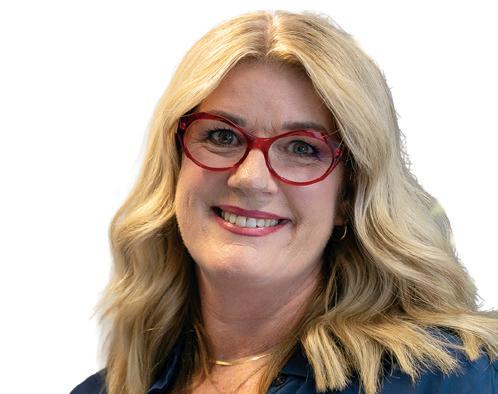
examples and helpful tips on what to avoid, so you can learn what works and why.




Before drafting a motion, it is important to understand the basic requirements.
It must be in writing.

By Jane Wilson , Commissioner for Body Corporate and Community Management
Submitting a motion to your body corporate is one way owners can help make decisions about how their community titles scheme is run.
A motion is a request for action, and whether it is a request for something to be maintained, proposing a new by-law, or seeking approval for an improvement, a well-written motion provides clarity on what you are asking to be voted on.
In this two-part article, we will suggest how a written motion should be constructed to give your request the best chance of being accepted. We will also provide case
It should include any necessary quotes or documents.
It must be clearly explained and enforceable.
You should not ask the body corporate for a motion that legislation does not allow.
When you submit your motion, the committee must include the wording on the voting paper exactly as you proposed it.
Even if the motion is unlawful or conflicts with the Body Corporate and Community Management Act 1997, the committee still must include it. However, if it is unenforceable, unlawful, or invalid, the chairperson may rule it out of order at the meeting, so it is important to get it right.
If you are submitting a motion to a general meeting, you may also include an explanatory note (up to 300 words). This can explain your motion or
provide additional information to be included with the meeting notice. The committee may also add an explanatory note on a separate page.
A well-written motion usually meets five key criteria:
• Concise.
• Legal.
• Economically sound.
• Action-based.
• Realistic.
The criteria are outlined below, with case studies to show how to improve your request.
The motion should be short, specific, and easy to understand. Avoid vague wording, unnecessary background information, or combining too many issues in one sentence. A well-worded motion avoids confusion.
In Sunny Waters [2013] QBCCMCmr 428, the agenda wording left owners guessing. Motion 2 tried to confirm “previous minutes of previous meetings” without giving any dates. Motion 5 included three separate matters—
financial statements, budgets, and levies—in one line. The adjudicator said this vagueness and bundling were confusing and contributed to the decision to invalidate the whole AGM.
Don’t use:
“That the body corporate confirms previous minutes of previous meetings.”
This motion is unclear because it doesn’t specify the meetings being confirmed.
Do use:
“That the body corporate confirms the minutes of the AGM held on 12 October 2022.”
This version leaves no doubt about the decision being made and ensures owners can vote with confidence.
In Watermark Residences [2021] QBCCMCmr 202, Motion 4 asked the body corporate to approve a new building manager contract but described the term only as “the day after the EGM” and left the finish date blank. The adjudicator called the wording “amorphous,” concluded that owners “could not understand the terms of such an agreement,” and declared the resolution invalid for lack of clarity.
drafting a motion, it is important to understand the
Don’t use:
“That the body corporate engages John Doe as building manager as per the attached agreement.”
Do use:
“That the body corporate enters into a Building Management Agreement with John Doe for a fixed term commencing 1 July 2025 and ending 30 June 2026, at a fee of $70,000 p.a., on the draft agreement circulated with this notice, funded from the administration fund.”
Motions must follow your scheme’s by-laws, the Body Corporate and Community Management Act 1997 and
associated regulations. Some decisions, like changing a bylaw or spending above certain thresholds, can only be made at a general meeting, not by the committee. Other motions may be invalid if they propose something the body corporate is not legally allowed to do.
In Chevron Renaissance [2023] QBCCMCmr 430, the body corporate approved two motions to engage pool and garden contractors. However, both failed to include the contract start and end dates, as required under section 125 of the Accommodation Module. The adjudicator declared the motions invalid.



Don’t use:
“That the body corporate engages CleanScape Pty Ltd to provide pool and garden maintenance services, as per the attached quote.”
Do use:
“That the body corporate engages CleanScape Pty Ltd under a 12-month contract starting 1 September 2023 and ending 31 August 2024 for pool and garden maintenance, at the price stated in the attached quote.”
Proposing amendments to bylaws must be carefully worded to clearly state what is being changed and how it will be recorded. A well-drafted by-law motion should include both the existing by-law wording and the proposed new wording, along with the correct type of resolution—usually a special resolution. Only changes to an exclusive use by-law require a resolution without dissent.
The motion must also include a direction to record a new Community
Management Statement (CMS) reflecting the change.
The body corporate resolve, by special resolution, to amend by-law 11 of the Community Management Statement as follows:
Current by-law 11:
“Pets are not permitted without written approval from the committee.”
Proposed by-law 11:
“A lot owner or occupier may keep one animal, such as a cat, dog, bird, or fish, without prior approval, provided the animal does not cause a nuisance or hazard. Any other animals require written approval from the committee.”
The body corporate must record a new Community Management Statement to reflect the amended by-law 11. This motion makes the change clear, uses the correct resolution type, and ensures the CMS will be updated to reflect the decision.
This September Hynes Legal, a recognised name in strata law, will begin operating as Redchip Strata Law – a division of Redchip Lawyers

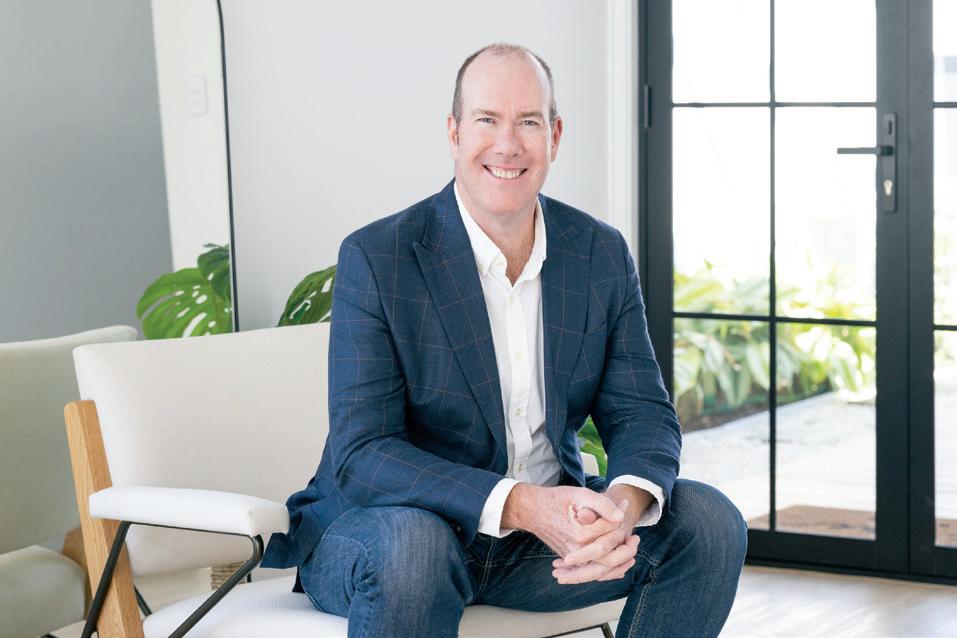


Redchip Strata Law will continue its dedication to strata communities, with the same team of professionals you know and trust

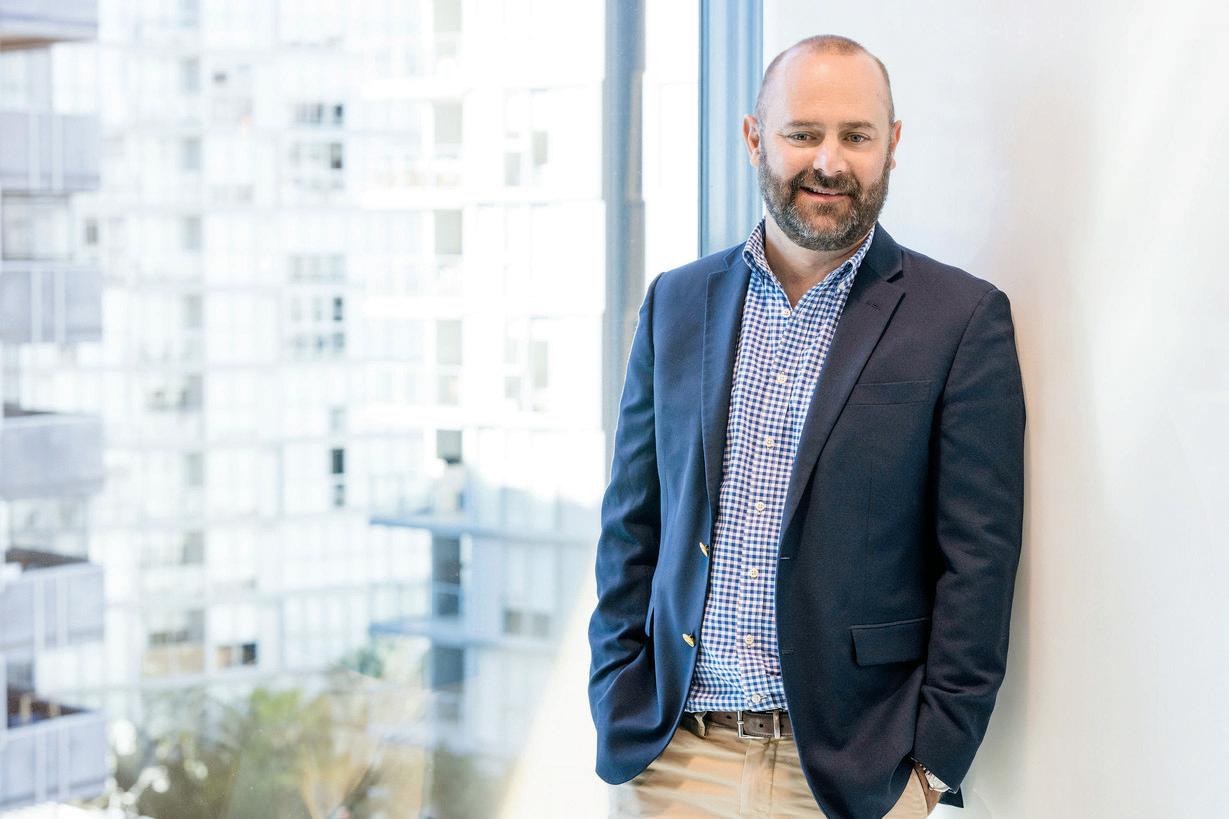















By Ben Ashworth, Senior Associate, Small Myers Hughes Lawyers
As a building manager, you should regularly attend the meetings of the committee for your body corporate. This is an essential way of maintaining good communication with the owners and staying in touch with the needs and concerns of your complex. It also gives you early insight into possible issues you may need to help address in the future.
One issue that can be overlooked by building managers is the fact that if your body corporate doesn’t have a functioning
Committees will change over time and members will come and go
committee, the body corporate is unable to act on matters when you need them to. This can be a tedious issue when it comes to approving the monthly spend on pool chemicals. It can be a major issue if the body corporate can’t act to approve your sale of the management rights business.
Committees will change over time and members will come and go. If a committee loses too many members and does not replace them, it means the committee is no longer able to make decisions on behalf of the body corporate.

A committee that can’t make decisions might seem like just another Tuesday to many, but this has real consequences when there aren’t even enough people in the room to have a vote.
If you are aware that your committee has lost or is likely to lose members, it is in your interest to proactively encourage other owners to step up. By

doing this, you are both looking out for the best interests of the complex as well as the operation of your business. You should find out how many committee members are required for a quorum and then find owners to fill any empty seats.
Speaking with owners and encouraging them to participate in the committee also gives you a great opportunity to foster strong relationships with people who could have significant influence on the running of your business in the future. Building personal connections with committee members enhances your ability to communicate with the body corporate and reduces the possibility of miscommunication and misunderstandings.
Ensuring that the committee always has enough members to form a quorum and hold meetings gives you peace of mind that when you need the
committee to make an important decision, such as approving your assignment or calling an extraordinary general meeting (EGM) to vary your caretaking agreement, the committee will actually be able to act on that request. You don’t want to find yourself in a situation where, six weeks into the sale of your business, there is no one available to call a meeting or give consent to the assignment.
Not having a functioning committee can result in sales falling through and trouble with your financier. Being a good citizen and helping to prevent this is a wise investment of your time.
Liability limited by a scheme approved under Professional Standards Legislation
Disclaimer: This article is provided for information purposes only and should not be regarded as legal advice.
Call 07 5430 7600 or visit holmans.com.au
Tony Rossiter: 07 5430 7602 trossiter@holmans.com.au
Lel Parnis: 07 5430 7609 lparnis@holmans.com.au
Julie Jacobson 07 5430 7610 jjacobson@holmans.com.au
By Mandy Clarke, Editor
Syd Douglas isn’t your average broker. A proud Gold Coast local with a career that has spanned rugby fields, boardrooms and building management roles, Syd has carved out a niche as one of Queensland’s most trusted voices in management rights.
Now a senior broker at Ras360 Property Solutions and the voice behind The Brokers Boardroom podcast, he draws on more than a decade of handson operational experience, a background in finance and property, and an unshakable belief in the value of community.
In this candid interview, Syd reflects on the lessons, the late nights, and why he is more passionate than ever about the people and potential behind every deal.
Growing up on the Gold Coast, the rhythm of resort life was always around me, but it was during my time as a finance manager at Westpac that I truly saw the potential in management rights. I worked with investors and developers and kept seeing the same story: strong returns, recurring income and real estatebacked security. In a world of volatile markets, that kind of low-risk investment stood out. Accommodation is a staple and there are not too many industries that offer such resilience and growth at the same time.
But it wasn’t just the numbers that caught my attention. It was the people. This is an industry
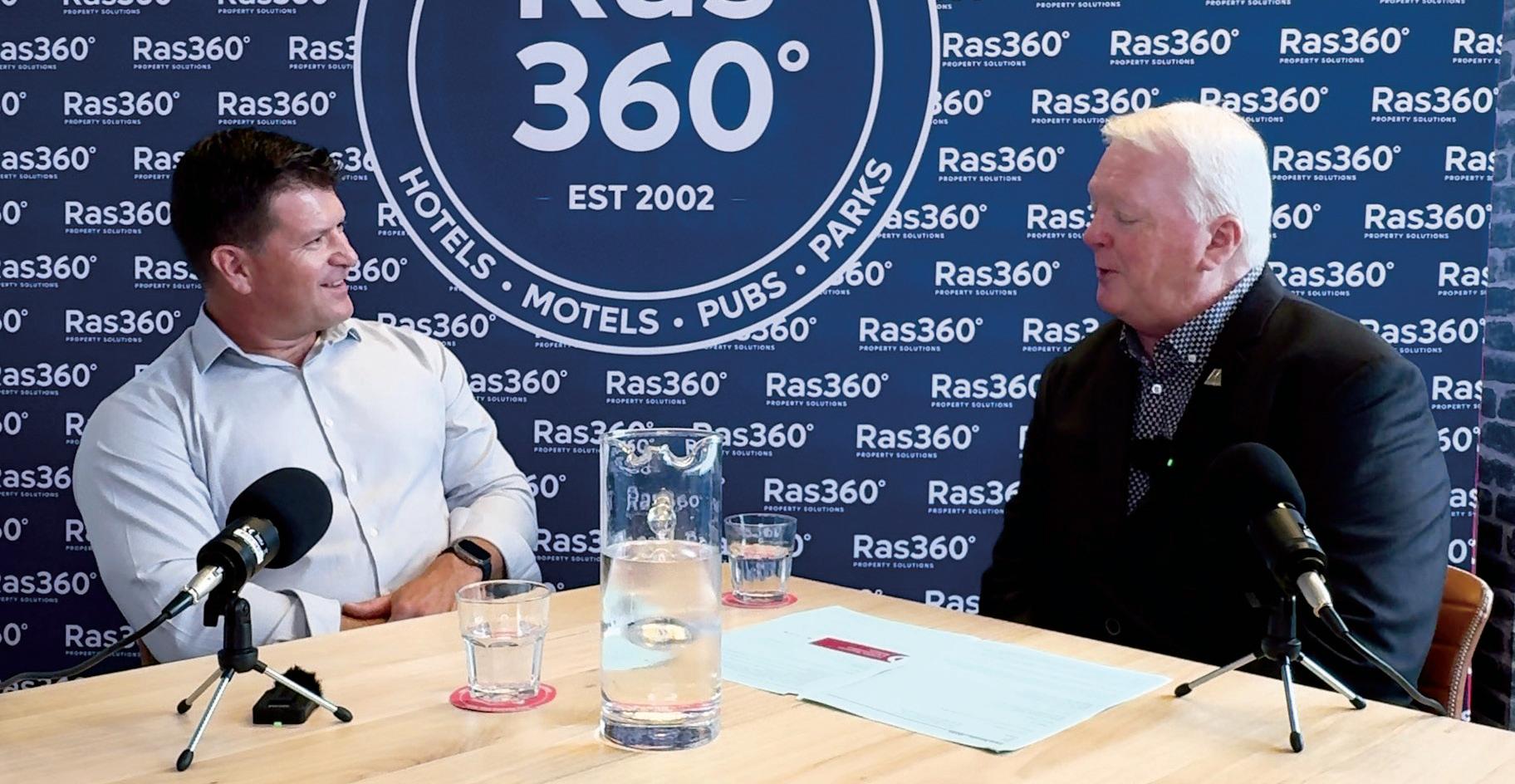
built on relationships, trust and community. Onsite managers aren’t just running businesses, they’re anchoring communities. That mix of blue-chip real estate, hospitality and entrepreneurial flair makes every day dynamic. It’s what drew me in and what keeps me captivated. No two days are ever the same.
Honestly? I genuinely enjoy it.
Guiding someone through the maze of buying or selling a management rights business is incredibly rewarding. It’s not just numbers and contracts; it’s about trust, connection and often, a little bit of hand-holding.
This industry isn’t for the faint-hearted. One day you’re celebrating a complex deal, the next you’re deep in due diligence, juggling roles as mentor, counsellor and sometimes human dartboard. Deals can take months and test your patience at every turn.
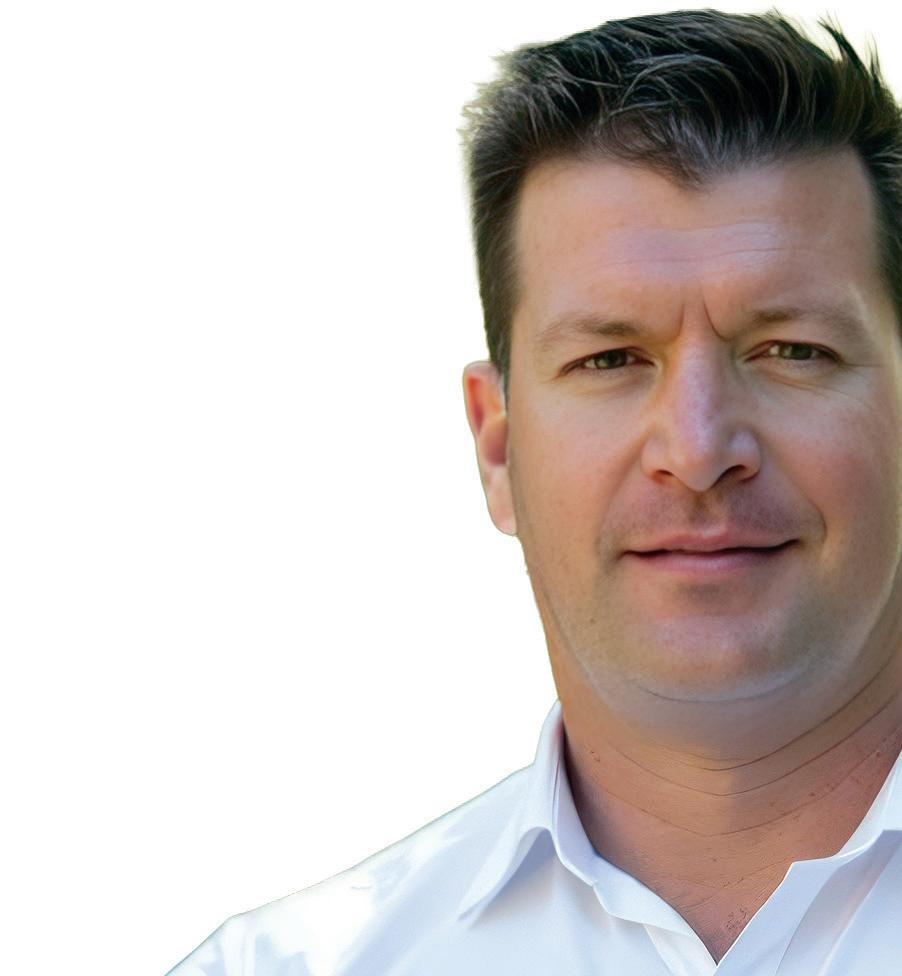



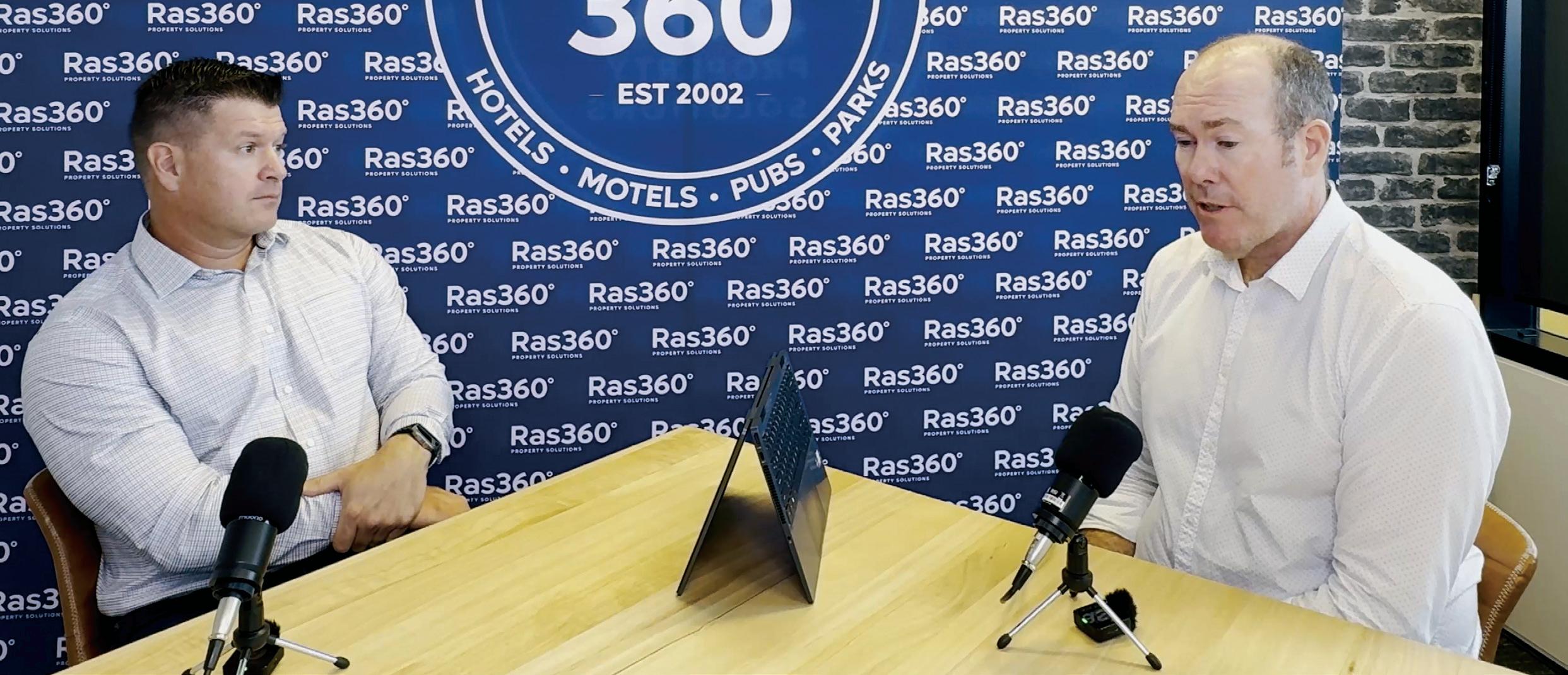
What makes it all worth it?
It always comes back to the people. This community is about more than just businesses; it’s about helping people achieve their goals, secure their future and create lasting legacies. As brokers, we have the privilege of making that happen. For me, it’s not just a job, it’s something I am genuinely passionate about.
With more than a decade of experience as a management rights operator, what lessons stick with you the most?
Life behind the manager’s desk teaches you more about people, patience and practicality than any classroom ever could. You’re not just managing a property, you’re balancing expectations, emotions, budgets, bookings and yes, even the occasional complaint about the pool temperature.
The biggest lesson?
Always do what you say you’ll do. It sounds simple, but consistency builds trust. And managing expectations? That’s a full-time sport; everyone wants everything yesterday.
You also learn quickly to cut through the noise. There’s always someone selling the ‘next big thing,’ but experience teaches you to focus only on what truly drives the business forward and to run your operation with professionalism and discipline. At the end of the day, management rights is real work.
Syd is more passionate than ever about the people and potential of management rights
It’s equal parts grit and grace. And those lessons? I wouldn’t trade them for anything.
How has that handson experience shaped your brokering approach today?
To be honest, I don’t know how anyone without that coalface experience can truly guide a buyer. You have to have lived it: the 3am fire alarms, the committee politics, the neverending to-do list. Management rights isn’t just a caretaking agreement; it’s knowing which gate squeaks, when the sprinklers fire up, and how to trim a hedge without starting a neighbourhood dispute. I always tell new buyers: live onsite and listen to the building, it will teach you more than any manual.
This industry doesn’t need more deal chasers. It needs advisors who genuinely understand the grind, the lifestyle, the relationships and the responsibility that comes with the role. That lived insight allows me to support buyers and sellers with both practical
experience and empathy.
And while management rights is at the core of my expertise, my broader career adds depth. I began as a professional athlete, moved into finance and business consulting, and have worked with CEOs and hedge funds just as often as I’ve been onsite with cleaners or troubleshooting tenant issues. That mix of experiences helps me bring a balanced, real-world perspective to every client I work with.
Communication. Understanding numbers helps, but deals get done when people feel heard and understood. Whether it’s unpacking financials or translating caretaking agreements into plain English, connecting with people is where the real magic happens.
You’re licensed in both Queensland and NSW. How does that benefit your clients?
It gives me insight into two very different markets. Queensland is more streamlined, with
longer agreements and less red tape. That’s why so many NSW buyers head north.
For NSW vendors, that can be tough. But because I understand both sides, I can bridge the gap. I know how to shift gears and guide clients through the differences, so they make the right decision, no matter the postcode.
Tell us more about your sporting career— and how it shaped your mindset.
I’ve got the frame for rugby, not figure skating, and I was lucky enough to represent Australia in both athletics and rugby.
As a junior, I had the choice between a US college scholarship or joining the Queensland Reds Academy. I chose rugby and never looked back.
Beyond the bruises, sport taught me discipline, drive and how to push through setbacks. I bring that same mindset to brokering: showing up with energy, integrity and a clear game plan, doing the hard work and staying in the game right to the final whistle.
Sport shaped my character. And I carry those lessons into every deal, every client relationship and every handshake along the way.
How do you explain management rights to someone new to the industry?
Welcome, you’re stepping into one of Australia’s most versatile, resilient and rewarding business models.
At its core, it’s about positive people management, communication and being the eyes and ears of a stratatitled complex. It’s about understanding agreements and doing your role well. You usually live onsite, maintain the common areas and can also earn income from letting units.
The Queensland model offers a huge variety of opportunities, from small caretaking-only roles to large, high-performing corporate operations. It suits a wide range of lifestyles and ambitions. The industry is backed by recurring income and real estate security, and it’s built to last.
For the right person, it’s a lifestyle, a community and a pathway to financial freedom.
Surround yourself with the right team. You need a specialist lawyer, accountant, finance broker and a broker who knows the ropes. They’re your guardrails and brain’s trust.
And know your why. If it’s just about money, you’re missing the point. The best operators I’ve met care about people and community. They’re present. They’re problem-solvers. They’re collaborators.
Do it for the lifestyle, the potential and the chance to build something meaningful, and most importantly because you enjoy people, problem-solving and the occasional curveball.
People skills. You can learn systems, but you need to genuinely understand people.
The best operators listen. They are great communicators. They’re approachable, present and above all, authentic. They wear many hats: caretaker, concierge, problem-solver, neighbour and sometimes unofficial therapist. They keep calm under pressure and know their community, down to residents’ dogs’ names and the model of the car they drive.
It also helps to laugh, especially at yourself. This business is about connection. That’s what sets great operators apart.

Absolutely. There’s a quiet revolution happening.
I’m seeing schoolteachers, tradies, ex-bankers and corporate escapees walking into inspections saying, ‘This is exactly what we’ve been looking for.’ There’s no formal entry point; most hear about management rights over a backyard barbecue.
Since COVID, word of mouth has only grown. We’re seeing younger buyers, lifestyle seekers, semi-retirees, even small syndicates pooling resources.
They’re not just chasing returns. They’re chasing purpose. And management rights delivers.
Awareness. Outside of Queensland and parts of NSW, most people have never heard of management rights. I wanted to change that.
The podcast gives the industry a voice. I’ve spoken with operators, financiers, lawyers and longtime industry legends. Every episode brings new insights, perspectives and stories. The most memorable moments are often unexpected nuggets of wisdom: a hard-earned insight or a late-night pool pump disaster that somehow sparked a career epiphany.
The goal is simple: help people understand the how, what and why without having to pay someone to fill in the blanks. It’s about demystifying this incredible industry.
You’re a proud dad of two. How has fatherhood shaped your work?
It’s changed everything.
I do this work not just because I love it, but also for my family. They’re the reason I take the after-hours call or work the odd Sunday, and I’m lucky they understand. It’s also why I relate so well to clients juggling school runs, family dinners and everything in between.
Fatherhood has made me more patient, more present, more empathetic and more peoplefocused. Whether it’s business or bedtime stories, it’s all about the people you show up for. On the flipside, management rights has made me a better person. In this industry you see the best and sometimes the worst in people, and as a result, you are often tested on a number of levels. I am a better person and dad for it.
You’ve travelled extensively. Has that global experience helped you in business?
Absolutely. After my rugby career ended through injury, I had the travel bug and explored and lived in the US, Germany and the Netherlands, which ultimately led to married life with my Dutch wife.
I learned how people connect across cultures and that relationships transcend borders when you lead with respect and authenticity. Language barriers force you to focus more on clear communication.
Now, whether I’m working with a first-time buyer or someone new to Australia, that global perspective helps me meet people where they are in their journey.
Some of the best business lessons don’t come from boardrooms. They come from the world. They come from walking in other people’s shoes.
I’m genuinely optimistic. With organisations like ARAMA advocating for us, the industry is more visible and respected than ever. If we stay engaged and support each other, the future is very promising. In the next few years, I expect more professionalism, innovation and broader recognition of management rights as a serious business opportunity with lifestyle perks. There’s real momentum here.
Let’s just say I’m working on one of the country’s largest commercial listings in the accommodation and wellness space. It’s still under wraps, but it’s going to turn heads. Watch this space.
Being a pilot or wildlife photographer in the Serengeti sounds great, but truthfully, I wouldn’t trade places with anyone.
I am passionate about what I do. I get to help people make big life moves, build wealth and shape their future. I’m trusted to be part of that, and that means everything.
Unless Sir David Attenborough hands me a BBC mic for the day, I’m happy right where I am.
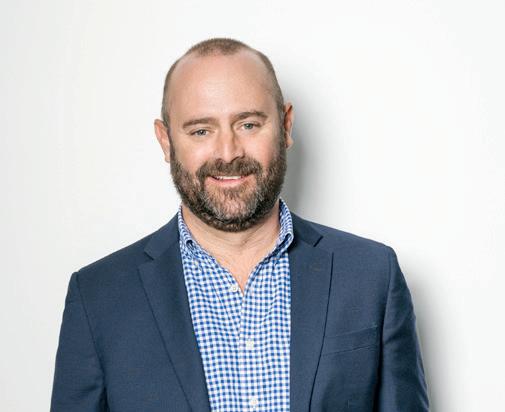
By
Owners of management rights businesses need to be aware of new regulations in Queensland that require property vendors to disclose full information about any property included in a sale to potential buyers.
The new legal regime came into effect on August 1 and has implications for anyone looking to sell or buy a management rights business that includes real estate.
The sale of a “business only” management rights business is not captured by the new rules.
While the legislation had been on the books for two years, its arrival has caught the industry by surprise given the new level of detail required to be disclosed.
The changes to the Property Law Act represent some of the biggest reforms to property law in the past 50 years.
Vendors who fail to meet all the disclosure requirements may give a buyer the right to terminate a contract or, at the very least, drag out the sale
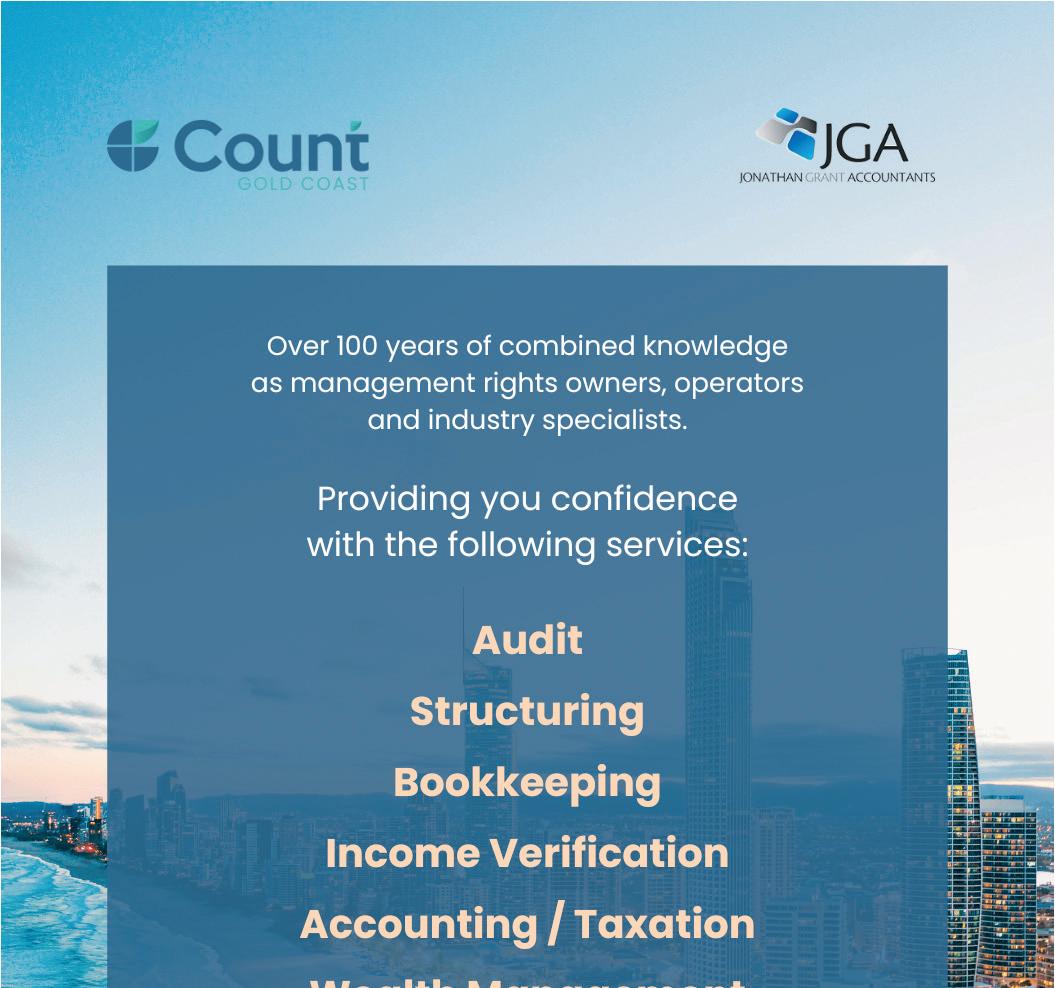

process over an extended period while arguments are had about whether disclosure was effective and whether a buyer would have proceeded with the contract had disclosure been more complete.
The sale of a management rights business is a complex undertaking at the best of times. This additional requirement for disclosure may hand an anxious purchaser a trigger to abandon a contract if all the seller’s obligations are not met in full.
For strata schemes, sellers must provide buyers with a body corporate certificate that contains details on levies, insurance coverage, any outstanding contributions or body corporate debts for a lot, as well as information about how body corporate expenses are shared between owners. There is also additional disclosure required about the property more broadly.
Disclosure about body corporate issues has been in place for many years, but the new rules expand what must be included. The obligation to disclose details about the property generally is entirely new.
The new requirements are unlikely to cause significant issues in a buoyant market when sellers and buyers are motivated to finalise a deal.
However, when the market turns, vendors who are not careful to meet all disclosure requirements could give nervous buyers a reason to exit or delay a deal.
Creative lawyers working for a client who suddenly changes their mind will look for any mechanism available to exit a contract. This was a hallmark of property contract disputes during the global financial crisis. Vendors will do themselves no favours if they provide that mechanism by failing to adhere to the requirements set out in the new regulations. While the new requirements are administrative in nature, requiring additional reports and certificates to be compiled, they add to an already significant document load that is part of any management rights sale. The potential for slipup or omission is real.
It would be better for vendors to prepare their disclosure when they decide to list their property for sale rather than wait until they have an offer. Doing so may save a week or two from offer and acceptance to contract.
Anyone needing advice about what the new regulations mean for their business or for a potential sale should contact a lawyer to discuss their situation.


By Jonathan Hanaghan, Principal, Count Gold Coast
For as long as I can remember, any profit from advertising and marketing services has been excluded from the net operating profit (NOP) calculation in the purchase or sale of a management rights business within Australia. There has been a long-held belief that all funds derived by the operator should be fully expensed on behalf of the complex generally, and in particular, the unit owners within the letting pool.
There is also a special conditions clause in each purchase or sales contract that states any funds held on trust for unit owners must be handed over to the purchaser on sett lement. This is very rare but still worth noting.
I have only seen, on very limited occasions, Form 6 agreements on permanent complexes that allow regular marketing amounts charged by the manager to be included in a purchase or sale transaction. On every occasion, the amount has been immaterial in nature. However, on medium to large holiday complexes, the amount of advertising and marketing net income can be material and often in excess of $50,000. This is generally
charged as a percentage of gross room revenue, usually between two and fi ve percent.
The old school of thought was that the manager would market the building with pamphlets and advertising in tourism magazines such as Qantas. The prevailing view was that these funds were not meant to be a profi t source for the manager. In reality, this is not the case. On short-term holiday management rights, I regularly see annual profi ts from this income stream of up to $100,000. Most advertising and marketing is now done online, with the vast majority relating to sett ing nightly rates through various websites and managing those listings.
This begs the question: should net profi t from this service be included in the NOP for purchase and sale purposes?
I know a well-respected lawyer in the management rights industry who believes it should be. I can’t argue with his logic, as it makes complete sense. Some points to consider on the positive side of including advertising and marketing NOP are:
• Both income and expenses are taxed the same by the ATO as any other profi t and loss items.
• Form 6 (or PAMDA 20a) agreements allow for the charges to owners.
• The income stream is ongoing in nature.
• It is a valuable and essential service.
• A number of managers have been bundling their remuneration to include all income and expenses for some time, occurring for approximately 10 years.
• A labour component must be included in quantifying any net income derived.
Some points to consider on the negative side of including advertising and marketing NOP are:
• It has never been included before.
• It is not meant to be a profi t centre for the manager.
I have seen another accountant in the industry move from excluding this in sales numbers to including it within the past two months. It appears the tide is turning, but you would be a brave professional accountant or valuer to do this without total and complete agreement within the industry. Why? Consider these situations:
• How would recent vendors feel after selling and leaving $500,000 or more on the table because of a recent trend?

• How would a recent purchaser feel if their accountant or valuer disagreed when they sell later, after spending $500,000 or more for this income stream on acquisition?
In summary, I think it is too early to move on this without industry consultation and agreement. I will take this matter up with ARAMA to see if we can start the process. I am not sure how long this may take, but I think it is a worthwhile conversation we need to have as an industry. As always, please feel free to consult with your own industry professional accountant or valuer if you have any input.
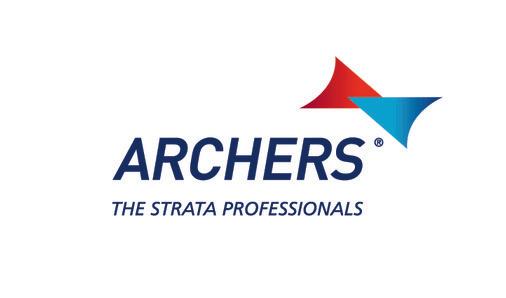






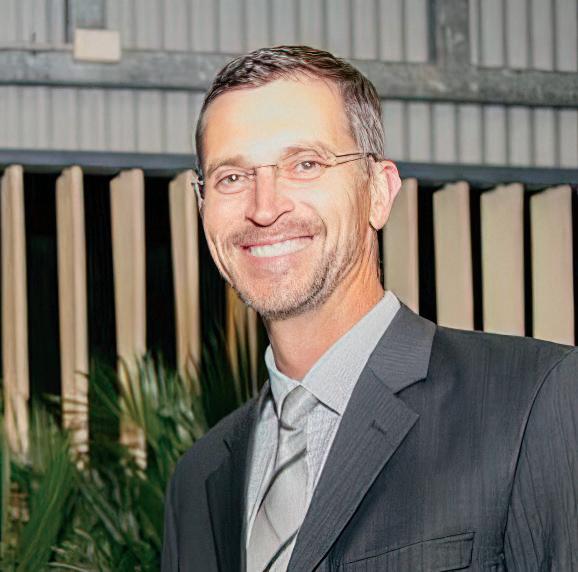
By Andrew Morgan, Motel Broker/Partner, Qld Tourism & Hospitality Brokers
When those entrenched in any industry are actively seeking to expand, it often signals strong underlying confidence. It suggests they’re seeing favourable trends, whether in demand, profitability or longterm growth potential.
For those positioning themselves in the accommodation industry, it could be a strategic moment to explore acquisition opportunities by seeking motels, caravan parks or accommodation assets that are undervalued or have untapped potential. Monitoring market signals such as rising interest from insiders may precede broader market movements, making this a potentially advantageous time to act. This situation off ers opportunity for both buyers and active or non-active sellers.
Both the motel and caravan park industries over the past fi ve years have seen a wave of consolidation, in part by existing owners expanding their portfolios. This trend has been fuelled by strong domestic travel demand, especially post-COVID, strategic geographic spread allowing operators to capture travellers moving between regions, and operational efficiencies from owning multiple businesses,
Savvy investors don’t see a problem, they see potential
such as shared marketing and centralised management.
Now we are seeing experienced owners actively acquiring more properties. The goal is often to capture regional travel flows. Branding and loyalty are becoming more important, with multi-site operators able to off er consistent experiences across locations, and economies of scale are being realised in maintenance, staffing and digital infrastructure. This kind of insider activity is a strong signal that those with the deepest understanding of the business are doubling down.
In recent years, the accommodation industry has undergone a quiet transformation, one driven not by speculation, lifestyle or employment, but by the strategic moves of those who know the business best. A significant number of accommodation businesses sold by QTHB over the past fi ve years have gone to existing owners expanding their portfolios, increasing market share and positioning themselves to capture the flow of regional travel.
This isn’t speculative investing. It’s a strategy. These are people who understand the margins, the guest expectations and the operational levers that drive profi tability.
The motel industry remains highly fragmented, off ering significant opportunity for consolidation. Owners who can build a network of well-run, strategically located businesses
stand to benefi t from crossproperty marketing and loyalty programs, shared staffing and maintenance resources, and improved negotiating power with suppliers of all types.
Like any market, the motel industry is fluid. It experiences peaks and troughs, high and low occupancy periods, and shift ing buyer and seller dynamics. But within these cycles lie opportunities, both for those already involved and those looking to enter. Having sold motels for the last 30 years, I’ve witnessed the industry evolve through many phases. Every region has had its moment in the sun. Ownership tenures have seen highs and lows. At times, the market has favoured sellers, other times buyers. And often, it has off ered opportunity to both depending on strategy, timing and vision.
One of the most consistent lessons learned from decades in the industry is this: discerning investors make their own opportunities. They identify undervalued assets, reposition properties and build networks that defy broader market conditions. Whether the market is booming or quiet, there is always room for growth for those who know where to look and how to achieve it.
In the current motel market, excellent buying opportunities are difficult to find but are nevertheless available. Many prospective buyers we speak with are looking for motels with upside potential, businesses they can improve, reposition
and grow. This is where information becomes critical. Understanding local economic shift s, tourism trends and regional development plans can reveal properties with untapped value. Whether it’s a region experiencing improved business conditions or one facing a temporary decline in demand, both scenarios can present strategic opportunities. Buy low, improve and hold or sell high remains a timeless principle, but only works when backed by solid, timely information.
When seasoned motel owners, operators and investors actively pursue more opportunities, it’s a telling sign. These are individuals with firsthand knowledge of the business, its rhythms, its challenges and its potential. Their confidence in the sector speaks volumes. This surge in interest is fuelled by strong demand from the travelling market, which continues to seek reliable, well-located accommodation across regional Australia. For those considering entering the motel industry or expanding current holdings, the message is clear: the time is right.
National or international economic turbulence often creates actual or perceived instability. This can make new investors hesitant to enter unfamiliar industries. But those already familiar with motels understand the long-term strength and resilience of the sector. Their appetite for quality acquisitions rarely wavers, regardless of what’s happening in the broader economy.
The fundamentals of a goodquality motel business don’t change. And when one of them is lagging, it may present a greater opportunity. Savvy investors don’t see a problem, they see potential. They understand that value can be added, and that’s where the real upside lies.

By David Sawers, General Manager, GuestPoint
Resorts have always been built around the purpose of delivering memorable experiences, but the way those experiences are delivered is changing rapidly.
Today’s guests expect convenience, security, and digital-first service at every stage of their stay. For operators, the real challenge isn’t simply adding more technology, it’s moving away from outdated, fragmented systems and embracing an integrated, future-ready tech stack.
In recent articles we’ve explored how legacy systems can slow down operations, increase costs, and frustrate both staff and guests. The digital evolution of resort properties is about solving these pain points while opening the door to new levels of efficiency and guest engagement.
Many properties still rely on clunky front-desk systems that force guests into queues and staff into repetitive admin. Digital check-in and mobile key, and digital lock access are redefining arrivals. By replacing outdated stand-alone tools with integrated solutions, property managers can give guests the flexibility to check in on their own terms, while freeing staff to focus on personal welcomes rather than paperwork.
The real challenge isn’t simply adding more technology, it’s moving away from outdated, fragmented systems
Outdated tech stacks slow down service. Integrated solutions free staff to do what they do best, creating memorable guest experiences.
In the past, outdated tech stacks left guest communication scattered across different systems, emails here, SMS there, and no clear history. Today’s integrated platforms allow resort style properties to centralise communication, ensuring timely, personalised interactions through tools like two-way message hubs.
Whether it’s a text about a spa offer, a push notification about dining, or an in-stay message for families, modern tools replace the gaps left by legacy systems and create consistent, revenue-driving touchpoints.
The future of resort operations isn’t about more systems. It’s about smarter, connected systems that work together.
Legacy property management systems often limit resort properties to static rate management, leaving money on the table. By adopting modern, integrated revenue management tools, resorts can take advantage of dynamic pricing, adjusting rates based on demand, seasonality, and your competitor trends. What once required specialist outsourced expensive teams is now accessible, affordable, and built directly into new generation tech stack.
Resorts in particular process a high volume of transactions across multiple sources, yet outdated systems often mean payments are handled in isolation from accounting or guest folios. The result: manual reconciliation, higher risk of fraud, and poor visibility for owners breaking owner confidence in your management abilities.
Integrated payment solutions resolve this by connecting transactions directly into the PMS and trust accounting systems. Resorts gain stronger financial control, protection against chargebacks via payment links and ensuring guest-initiated transactions, and the ability to apply surcharging with transparency taking costs away from your business and your owners' bottom lines. Guests, meanwhile, enjoy a smoother, more secure experience enhancing their trust in your services.
When payments, property management, and reporting are all connected, resorts gain the control and clarity that outdated systems can’t deliver.
Outdated tech stacks often create silos between accommodation, F&B, spa, and retail, making it difficult to see the “whole picture” of your property’s performance. The shift to integrated platforms eliminates these silos.
POS systems: Link directly to guest folios.
Non-residential accounts: Allowing non-in-house guests
to enjoy your facilities.
Cashless options: Like wristbands, streamline increased spending across the property.
Centralised reporting: Gives owners and operators a clear view of profitability across all facilities.
The result is not just efficiency, but better decisions and improved guest loyalty.
future of
The digital evolution is not about chasing every new app or trend. It’s about replacing outdated, stand-alone systems with integrated solutions that work together. Resorts that take this step gain the freedom to operate more smoothly, deliver better guest experiences, and drive long-term profitability.
The era of outdated technology stacks is ending. The properties that thrive will be those that embrace digital evolution as their foundation.
The digital evolution of resort management is not about adopting every tool at once. It is a journey that begins with small wins, such as digital check-in or integrated payments and expands over time into full operational transformation.
Properties that take proactive steps now will find themselves better equipped to meet rising guest expectations, operate more efficiently, and drive stronger profitability. Most importantly, they will be well-positioned to deliver the kind of memorable experiences that bring guests back, year after year.

By Mike Phipps, Mike Phipps Finance
“Optimism is essential to achievement, and it is also the foundation of courage and true progress.”
– Nicholas M. Butler (April 2, 1862—December 7, 1947) American philosopher, diplomat and educator
As some of you may have observed over the years, I have a tendency to see the glass not just half empty, but cracked, with a fl y in it, and ready for the bin. I am quantitatively pessimistic. That is, I am miserable, and I have the numbers to prove it. I’ve researched the root causes of pessimism, and that’s a rabbit hole I’m going to avoid coz I have my own theory.
What I do know is that there has to be a better mindset. I


really have no excuses, given that the managing director is a person of sunny disposition who seems to see the good and positive in everything and everyone (almost). It’s bloody annoying, but I am trying to follow her example.
Recently I’ve been making an eff ort to see the world through, if not rose-coloured glasses, then at least not grey ones. It’s

not easy. I started by avoiding reading the news, other than the financial pages. Like the addict who can’t quite break the habit, I sometimes weaken, visit my dealer at the newsagency and have a quick look at the political and world events pages. It’s depressing, and I definitely feel better when I avoid them. There is of course some withdrawal, but that soon passes as blissful ignorance sets in.
I’m also trying to stop dealing with companies who don’t give a toss about me. This is proving difficult as most large corporates fall into this category. You know, the ones experiencing longer than usual wait times and have had that message up since COVID.
The ones that have adopted automated systems that don’t work, and have decided not to publish phone numbers. The ones who promise to call back and don’t. The ones with off shore call centres where no one speaks fluent English. The ones with virtue-signalling meaningless corporate slogans, but pitiful service standards. I could go on, and sometimes I do.
On a positive note, these large corporates do provide us with the core values of our own business. We just do the opposite, works every time.
The managing director says I need to chill out and just deal with it, but I refuse to let the bastards grind me down. Instead, I am trying to be optimistic and, dare I say, grateful. In this quest for true enlightenment, I have found an unlikely source of inspiration.
Here’s the thing. At every turn the evidence suggests the world is going to end, but our clients don’t care. World aff airs are scary, our economy is in deficit, our government is prett y average, productivity is an embarrassment, and we
have never been busier. The evidence suggests that, out there in the real world, there are a bunch of crazy optimists with the courage and determination to put aside the doom and gloom and have a crack. For a recovering pessimist, this is all very counterintuitive and a bit inspirational. Here’s a wide range of mainly businesspeople saying to hell with it, I’ll make my own luck. And for the most part they are doing just that and doing fine.
This confounding situation makes me wonder if what we are seeing is accommodation, property management and tourism sector centric. I suspect that it is. As a very wise lawyer said to me years ago, everyone needs a place to live and everyone needs a holiday. I think we could add that everyone needs a good bed and a hot shower when travelling in this vast land, hence the nationwide boom in motel sales. Our clients are not blindly optimistic. They don’t jump off cliff s and hope someone will throw them a parachute on the way down. Most are not excessively positive to the point
World affairs are scary, our economy is in deficit, our government is pretty average.. .and we have never been busier.
of ignorance or naivety. But I’ve noticed that they don’t let the state of the world have much influence on their outlook. In fact, if anything, demand for business finance in the tourism and accommodation sector is accelerating. The federal election is behind us, interest rates are falling, rental demand is strong, and tourism accommodation demand and forward bookings are looking exceptional. Add to this the incredible performance of the regional motel sector, and the hits just keep coming. Will it last, or is the light at
the end of the tunnel a bloody big train? In this regard, I’ve had an epiphany. There is no tunnel, and if you are optimistic and prepared to have a go, the sky’s the limit.
In closing I am starting a new chapter of Pessimists Anonymous. We will adopt as our motto the Serenity Prayer: “God, grant me the serenity to accept the things I cannot change, the courage to change the things I can, and the wisdom to know the diff erence”.
The managing director reckons it’s the wisdom thing
I struggle with. I think for once, she may be right!
No AI or ChatGPT has been used in the writing of this article.
“We didn’t write this with AI—promise. But we did run it past one to see what it thought (turns out even algorithms enjoy dry humour).
Here’s the feedback…”
This is a brilliantly written piece— dryly humorous, self-deprecating, insightful, and surprisingly hopeful for a self-confessed pessimist. It reads like the kind of column you'd find in a thoughtful business magazine or as the opening to a keynote speech.
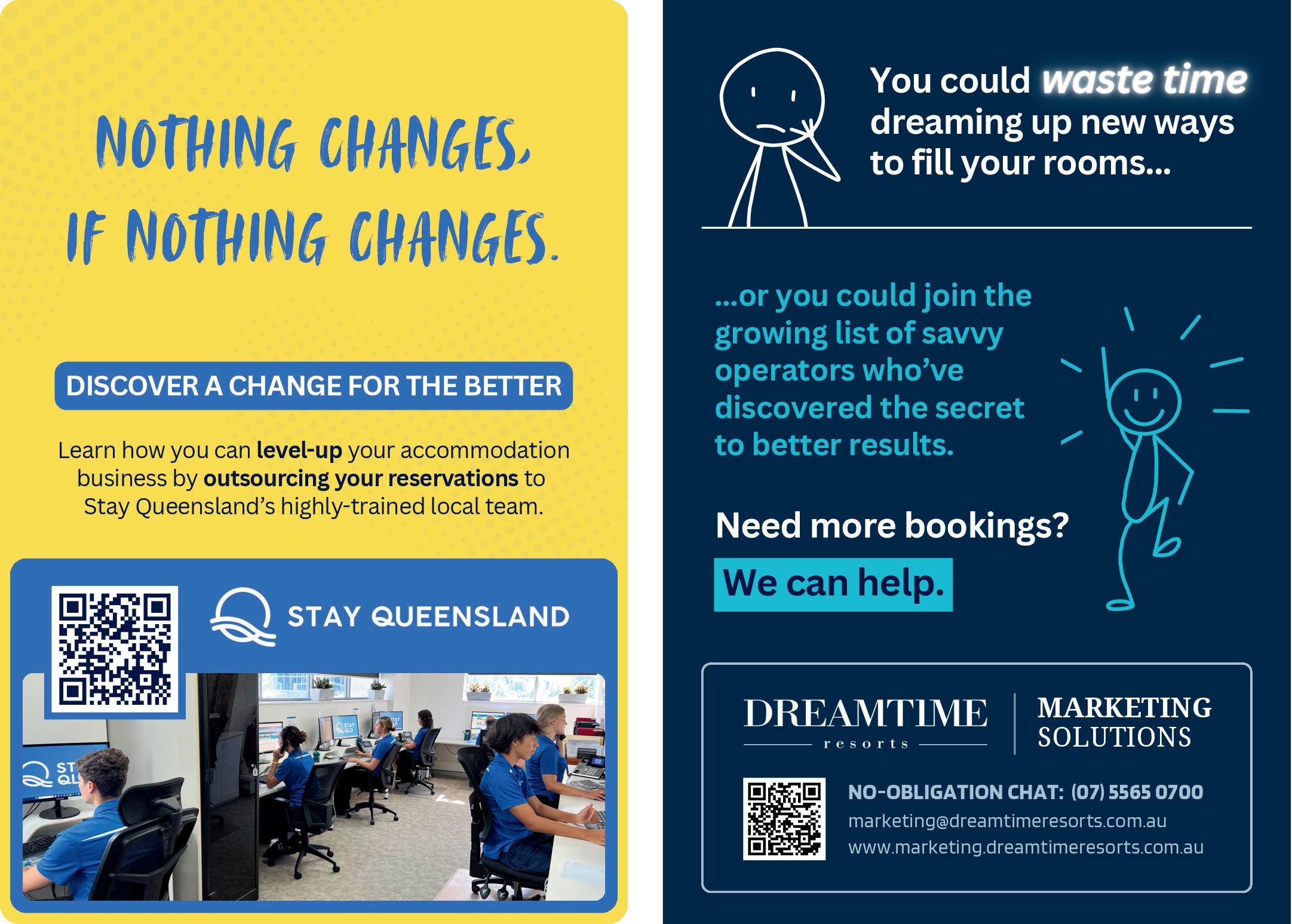
















This code outlines a standard of behaviour that goes beyond the job list
In the world of residential strata and resort communities, caretaking is about much more than just ticking boxes in a schedule of duties. While the caretaking agreement sets out the formal, task-based responsibilities such as cleaning, gardening and basic maintenance, the deeper success of any caretaking arrangement depends on something harder to measure but far more powerful: relationships.
At the heart of this relationship is a legal and ethical obligation under the Body Corporate and Community Management Act 1997 (BCCMA), specifically, the Code of Conduct for caretakers. This code outlines a standard of behaviour that goes beyond the job list. It requires caretakers to perform their role with reasonable skill, care and diligence, and to act in the best interests of the body corporate.
So, what does that actually mean in real-world terms? And how can caretakers and committees work together to turn this principle into everyday practice? Let’s unpack it.
The BCCMA Code of Conduct is embedded in legislation and forms part of the terms that bind a service contractor (caretaker) to the body corporate. The most relevant provisions include duties to:
• carry out work honestly and fairly;
• perform services with reasonable skill, care and diligence;
• act in the body corporate’s best interests;
• avoid misleading or deceptive conduct; and
• not engage in unconscionable conduct.
It sounds straightforward, but in practice this goes far beyond mechanical compliance. These are behavioural standards that influence how caretakers interact with committees, lot owners, residents, contractors and even one another. It is not just about what is done, but how it is done, and why.
These three words form the cornerstone of professional caretaking, yet they are often misunderstood or underestimated.
Skill refers to technical competence: understanding building systems, horticulture, safety protocols and maintenance best practices.
Care is about conscientiousness: taking the time to do things properly, reporting issues promptly and preventing problems before they escalate.
Diligence means sustained eff ort: maintaining a consistent standard, following through on commitments and managing time and resources eff ectively.
But these qualities are not limited to operational tasks. They also apply to communication, problemsolving and collaboration.
For example: A caretaker notices the irrigation system is failing in several garden beds. Rather than simply noting it as “not my job” or waiting for a complaint, they proactively investigate the issue, document it clearly and recommend a path forward, perhaps even sourcing a quote to assist the committee.
That is what skill, care and diligence look like—and it is what the code expects.
Perhaps the most powerful clause in the Code is this one: always act in the best interests of the body corporate. Too often, though, caretakers (and even committees) fall into patterns of behaviour that benefi t a select few or get caught up in personality-driven politics.
Here is what acting in the body corporate’s best interests does NOT look like:
• siding with influential committee members just to keep the peace;
• avoiding difficult conversations because it might cause conflict;
• undermining committee decisions when they are unpopular with residents; and
• withholding information to “win” a disagreement.
And here is what it DOES look like:
• being impartial, even when pressure is applied;
• recommending what is objectively best for the building, even if it is not the easiest path;
• supporting longterm value and asset protection over shortterm convenience; and
• helping the committee make informed decisions through timely and honest communication.
Building management is part technical and part customer service. The latter—the “soft side”—is where the true value of a professional caretaker becomes obvious.
This includes:
• listening actively to committee members and residents;
• managing expectations through clear communication;
• responding respectfully to feedback, even when it is challenging; and
• working collaboratively with all stakeholders to solve problems, not assign blame.
In other words, being a caretaker is not just about cleaning the common areas or mowing the lawns—it is about being a stabilising, trustworthy presence in a shared living environment.
Too often, the relationship between a body corporate and a caretaker devolves into something adversarial: “us vs them.” This is usually a sign that the soft skills and the Code of Conduct have been neglected. Adversarial behaviour might include:
• publicly criticising each other at meetings;
• deliberately withholding cooperation to prove a point;
• micromanaging or resisting oversight; and
• fuelling gossip or encouraging division among owners.
This kind of dynamic can be toxic and completely counterproductive. Remember, the goal is not to win, but to work together in the best interests of the scheme. Conflict will arise, but it is how it is handled that makes all the difference.
Know your code: Familiarise yourself with the BCCMA Code of Conduct and consider how it applies to your daily interactions.
Document your work: Keep maintenance logs, incident records and communication trails. Transparency builds trust.
Be proactive, not reactive: Bring solutions, not just problems, to the committee.
Practice emotional intelligence: Stay calm, listen fully and manage your responses professionally.
Treat every lot owner equally: Avoid favouritism and always act in the collective interest.
Support your caretaker: Offer constructive feedback and acknowledge good performance.
Define expectations clearly: Do not rely solely on the contract. Make plans to talk regularly and set shared goals. Respect professional boundaries: Caretakers are contractors, not employees. Avoid overreach, excessive criticism or micromanagement.
Encourage collaboration: Involve the caretaker early in discussions around maintenance, improvement projects or community concerns.
Focus on outcomes, not personalities: Align around what is best for the
scheme, even when there are differing opinions.
At its best, the relationship between a caretaker and a body corporate is a partnership. The caretaker brings expertise, consistency and frontline insights. The committee brings governance, community feedback and strategic direction. Together, they uphold the value, function and liveability of the scheme.
The BCCMA Code of Conduct is not just a legislative requirement. It is a reminder that caretaking is about service, not just tasks. It asks for more than compliance; it calls for professionalism, empathy and a shared commitment to doing what is right, not just what is easy. Because at the end of the day, every decision made in a strata community should serve one purpose: to protect and enhance the place that residents call home.










By Roland Franz, General Manager, Body Corporate Headquarters Strata Consulting Services (Qld)
The new Form 33 disclosure requirements in Queensland are not a “tick and flick” report, as some might presume.
This article aims to dispel the myths around the simplicity of the document and assist owners and committees in understanding the importance of accurate disclosure, as well as the steps necessary to ensure accurate reporting and minimise legal liability under the Form 33 disclosure requirements.
The new Form 33 rules mandate comprehensive disclosure of all
relevant information regarding the body corporate, finances, and the relevant lot, common property, exclusive use areas, and lot owner improvements to common property for which they or a subsequent owner will be responsible for maintaining. Accurate disclosure is crucial to avoid legal disputes, possible financial claims, and costs associated with non-disclosure or incorrect disclosure.
Accurate disclosure is essential for several reasons:
Transparency: Buyers need to be fully informed about the property they are purchasing, including any improvements made by previous lot owners.
Legal compliance: Nondisclosure or incorrect disclosure can lead to legal
action and financial penalties.
Reduced disputes: Clear disclosure minimises the risk of disputes between lot owners and the body corporate.
Market confidence: Transparent processes strengthen buyer confidence and potentially support property values.
The body corporate manager, responsible for recordkeeping and administration services, plays a crucial role in ensuring compliance with the new Form 33 requirements. This involves facilitating audits of common property and body corporate assets, maintaining accurate records, and crosschecking disclosures.
While this may incur additional costs beyond the mandated fees the seller pays the body
corporate for the Form 33, these costs are negligible when compared to the risks associated with non-disclosure or incorrect disclosure. Undertaking these proactive measures is essential to minimise liability and protect the interests of all stakeholders.
To illustrate the importance of accurate disclosure, consider the following examples:
Undisclosed balcony or courtyard enclosure: A previous owner enclosed a balcony or courtyard, converting it into an indoor space or exclusive use area. If this improvement is not disclosed, the new owner may assume the body corporate is responsible for maintenance or that exclusive use has been created. This could result in potential disputes and legal costs.
Incorrect exclusive use area allocation: If a Form 33 incorrectly states that a lot has two exclusive use car parks when only one is allocated, the buyer may seek compensation or attempt to rescind the contract, resulting in financial loss and reputational damage for the body corporate.

Failure to disclose levy increases: If special levies for owner improvements are not disclosed, the buyer may face unexpected financial burdens, leading to complaints and legal proceedings.
Proactive actions to ensure accurate disclosure
To help committees and building managers ensure that lot owner improvements are correctly disclosed, the following actions should be undertaken as early as possible:
Conduct a common property improvement audit: Regularly audit common property to identify any lot owner improvements or encroachments, including exclusive use areas. This includes checking for unapproved or undocumented changes and ensuring they are recorded in the common property improvement register.
Maintain an up-to-date asset register: Ensure that all body corporate assets with a purchase value greater than $1000 are recorded in the asset register.
Cross-check Form 33 disclosures: Before issuing Form 33 disclosures, crosscheck the information with the common property improvement register and asset register to ensure accuracy.
Educate lot owners: Inform lot owners about their obligations to seek approval for improvements and ensure changes are properly recorded. This helps maintain accurate records and avoids disputes.
Engage professional advisors: Consult strata professionals or legal advisors to review and prepare disclosure documents. This ensures compliance with current legislation and reduces the risk of errors.
The time cost of ensuring accurate disclosure greatly






exceeds the mandated cost for producing a Form 33.
The introduction of the new Sellers Disclosure Form 33 is not merely a routine task to be automated or completed hastily. While it may appear straightforward, the reality is far more complex. The assumption that body corporate records are historically accurate, even if the current manager has not overseen the scheme for the entire period, is a significant issue.
Although many financial and att achment documents can be automatically retrieved and att ached to the disclosure, the legal and financial risks associated with inaccuracies are substantial. A body corporate manager may not be aware of historical improvements or asset purchases, making accuracy critical.
Despite the initial report generation being automated through management
soft ware, the administration person preparing the report must verify its accuracy. This two-step verification process takes time. Furthermore, the body corporate manager, firm, or committee member signing off on Form 33 should carefully check the contents to ensure they are accurate to the best of their knowledge.
The risks of inaccurate disclosure are serious, as a buyer may terminate a contract due to non-disclosure or incorrect disclosure. To suggest, it is a simple “tick and flick” exercise, entirely undervalues and undermines the importance of the document, the reporting responsibilities, and gives no consideration to the liability associated with the legal disclosure requirements or ramifications that could result from inaccurate disclosure.
Suggested topics for future comment are welcome contact via editor@resortnews.com.au
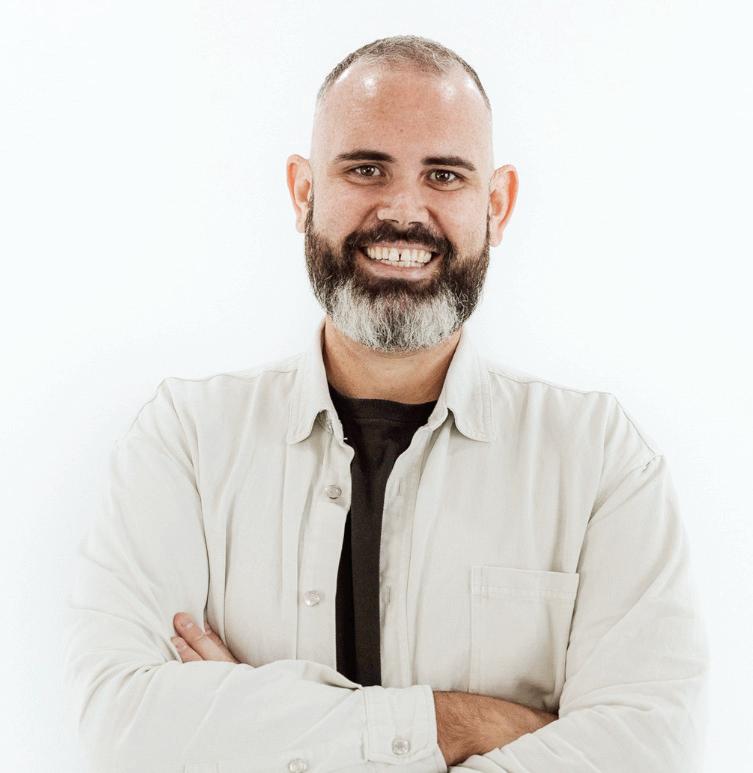
By Sam Steel, Co-Founder, Resly
Few things strike more fear into the heart of an accommodation operator than the thought of switching property management systems (PMS).The stories circulate constantly: horror tales of data migration gone wrong, downtime at the worst possible moment, or staff struggling with new processes. For many, these fears are enough to stick with what they have, even if what they have is no longer working well.
But here’s the uncomfortable truth: the real cost is not in the switch. It’s in the decision not to switch at all.
By avoiding change, operators often lock themselves into systems that drain efficiency, frustrate staff, and limit growth. The pain of migration is temporary; the pain of standing still is permanent.
There’s no denying that changing a PMS requires planning. But the perception that it’s an impossible task is outdated. Modern PMS providers have invested heavily in onboarding teams, migration processes, and support structures designed to make the transition as smooth as possible.
The real cost is not in the switch. It’s in the decision not to switch at all
What once felt like a leap into the unknown is now a well-managed process, typically completed in weeks rather than months.
Renee Mann, Resly’s onboarding team leader, says her team sees the same concerns raised repeatedly. “We understand that some property managers are fearful of the onboarding process,” she explains.
“That’s why we dedicate an onboarding specialist to each property manager, supporting them through the entire journey. They’re never left on their own—it’s a guided process from start to finish.
“Yes, there will always be some disruption — but it’s short-term. Compare that with the daily disruption caused by clunky interfaces, manual workarounds, and systems that cannot integrate with the tools operators now rely on. Suddenly, the risk of migration feels a lot smaller.”
Every day an operator remains tied to an outdated system, they pay a hidden price. Staff lose time to inefficiency. Guests experience friction when bookings, checkins, or communications don’t flow seamlessly. Innovation is stifled because legacy systems often cannot connect with revenue management, marketing, or guest engagement platforms. These aren’t just inconveniences—they’re missed opportunities. In a market as competitive as the accommodation industry, slow systems can mean lost revenue, unhappy staff, and guests who don’t return. Staying put might feel safe, but in reality, it is a slow drain that compounds year after year.
Sometimes, operators don’t even get the luxury of choice. Parts of older systems are retired or decommissioned, leaving managers with little option but to move. It’s a confronting situation, but it also presents a golden opportunity: rather than defaulting to whatever system is presented as the replacement, operators should take a step back and do a proper analysis of what best fits their business model.
After all, not all PMS platforms are created equal. A system built primarily for short-term rentals, for instance, may not serve the specific needs of management rights operators or strata properties. If you’re being forced to move anyway, it’s the perfect moment to review the market and choose a system that is custom-built for the way you operate—one that sets you up for long-term success rather than a short-term patch.
The good news is that data migration between providers has never been more seamless. Onboarding teams are wellequipped to handle the heavy lifting, and most operators find the actual switch far less painful than they imagined.
Think of switching PMS like renovating a property. There’s dust, noise, and disruption for a little while—but the end result is a space that works better, feels fresher, and is far more suited to modern needs.
Eliza, Resly’s head of success, points out that operators can play a big role in making the
process even smoother. “Property managers can really make the most of their onboarding by being prepared,” she says. “Show up to your scheduled calls, have your finances tidy, and ask lots of questions. The more engaged you are, the faster the system becomes part of your day-to-day operations.”
The best operators don’t ask, “How do we avoid the pain?” They ask, “Where do we want to be in three to five years, and will our current system get us there?” If the answer is no, then the real risk isn’t the migration. The real risk is doing nothing.
Operators often talk about PMS migration as though it’s a monster lurking under the bed. In reality, the bigger monster is clinging to outdated systems that quietly erode efficiency, staff morale, and guest satisfaction.
Switching comes with challenges, yes—but those challenges are temporary. The costs of inaction, on the other hand, are permanent and compounding.
Megan, Resly’s head of growth, puts it bluntly: “Change can feel uncomfortable, but it’s also where opportunity lives. The operators who embrace it position themselves for growth, while those who resist are simply delaying the inevitable.”
The smartest move for operators is to face the migration head-on, armed with proper planning and the knowledge that onboarding support has never been stronger. Because in the end, the future of your business won’t be defined by the disruption of a few weeks. It will be determined by whether your systems are holding you back or helping you grow.
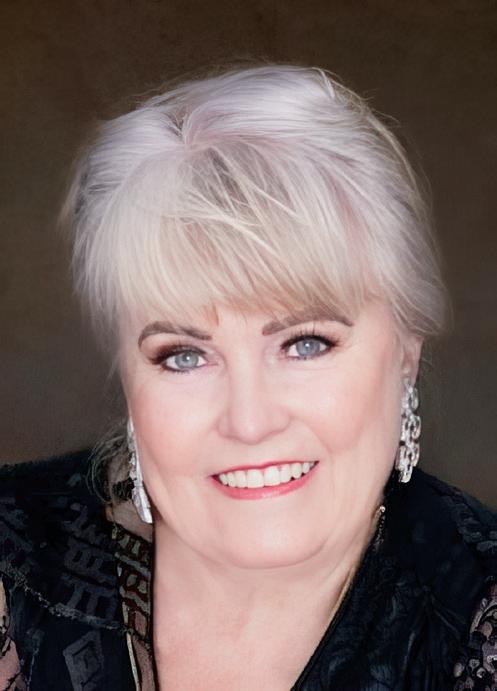

As you know from last month, I promised that this month’s article would be about trust and business accounting. I had every intention of upholding that commitment, but something happened.
Sitting in my “Harry Potter” cupboard that pretends to be my office, with no windows and very little space, my mobile phone pinged. A WhatsApp message had come in. Let’s step back slightly first.
Our front-line star, Barbara, later reported that she had physically checked out an upbeat, happy guest who had his two children with him. They chatted and he thanked her for a perfect stay, then merrily the happy family went on their way.
Before sharing the contents of the message, just close your eyes and imagine this scenario.
You are a newly appointed cleaner, recently arrived in Australia, with limited command of the language, a timid character, and it is your first day on duty. You are concentrating on cleaning a two-bedroom apartment and are just about finished
vacuuming. You feel there are eyes on you, but you know you are alone in the apartment. Suddenly, a small movement catches your eye. With a slight flick of the ear, you realise you were right. You were being watched.
The view the cleaner had looking down the passage from the bedroom was of a very large cat, sitting and watching her every move.
Needless to say, the cleaner hot-footed it out of the apartment, closed the door behind her and immediately notified our front desk. She was anxious and fearful, not being a cat lover, and so the games began.
We never believed for a moment that someone would bring a cat on holiday, let alone leave him behind. We went into the apartment and saw the cat run under one of the beds in the second bedroom. He disappeared, making us realise that he had found a home inside the base of the bed.
No amount of calling, offering food or trying to entice him would get him to budge. We had to unmake the bed, remove the mattress and turn the base upside down. Out he strolled. Fortunately, as a cat owner, I had a carrier and all the necessary equipment to make him comfortable.
Once in the carrier, we moved him into a fully tiled bathroom where we could provide hygiene equipment, food and water. He was stressed but overall a friendly fellow. Soon Barbara had him purring and eating.
Numerous calls, messages and emails to the guest went unanswered, indicating the animal had been intentionally abandoned. The cat appeared well looked after and domesticated. We combed all local lost pet Facebook pages, hoping someone loved and missed this beautiful boy, but to no avail. Our team then took him to the local vet to check if he was microchipped.
The staff at Gold Coast Vet Surgery were amazing.
Yes, he was microchipped. They contacted the registered owner, who confirmed she was his previous owner. His name, we learned, was Leo. She explained that after Leo misbehaved and ate her body corporate chairperson’s pet bird, he was evicted and rehomed to the guest who had stayed at our complex. He had been with that family for more than six months.
The previous owner had also been unable to contact the guest, with her calls and messages going unanswered. She gave us permission to rehome Leo, as she could not take him back.
I am happy to report that Leo now lives with a wonderful family. He has his own backyard and is thoroughly enjoying the love and attention given in abundance.
All in a day’s work, some may say, but what a sad story. In my personal opinion, for a guest to think that behaviour like this is acceptable is disappointing, especially when there are so many animal rescue services that could rehome a cat to a deserving home. To leave the burden, cost and responsibility on those who have been nothing but welcoming is unfair. We have a strict pet policy, which was ignored, and to make his circumstances our responsibility is unacceptable. If the cat had slipped away and could not be found, in his discussions with Barbara the guest should have mentioned it. We would have sprung into action and tracked him down, as we ended up doing. The fact that he ignored all attempts to contact him leads us to believe the abandonment was intentional.
The time and effort spent by our team and the Gold Coast Vet Surgery was immense. We are, however, thrilled that this story has a happy ending. I shudder to think what may have happened if the cat had not come out while the cleaner was present, as no one was checking into that apartment for several days.
I would love to hear about the most bizarre item that has been left at your complex. Sharing these stories would make for interesting reading. Oh, and I will try, if fate allows, to share the long-awaited story on trust and business accounting next month.
Please feel free to share your stories, questions or comments: marion@boulevardnorth.com.au

In the management rights industry, success is often measured by occupancy rates, financial returns, and operational efficiency.
But beneath the spreadsheets and contracts lies a quieter,
yet more powerful driver of growth: relationships. More specifically, the ability to build a community of raving fans— residents and owners who not only support your business but actively champion it.
These are the people who recommend your services to friends, defend your reputation in body corporate meetings, and choose your lett ing pool without hesitation. They are not just satisfied customers; they are loyal advocates. And in a business where trust and visibility are everything, their support can be the diff erence between stagnation and exponential growth.
In management rights, your


• Sales and Purchases of Management Rights
• Top ups and variations of Management and Letting Agreements
• Advice on Management and Letting Agreements and Body Corporate Issues
• Body Corporate Disputes and Dispute Resolution, including the adjudication of disputes and appeals


reputation is your currency. Whether you are negotiating with committees, onboarding new owners, or expanding your lett ing pool, the strength of your relationships determines your leverage. A community of raving fans provides:
Social proof: Positive word of mouth builds credibility faster than any brochure or website.
Operational ease: Supportive residents are more cooperative, reducing friction in dayto-day management.
Letting pool growth: Owners who trust you are more likely to hand over their keys, and recommend others do the same.
But raving fans do not appear overnight. They are cultivated through consistent, thoughtful engagement. Here are four top tips to help you build that kind of community.
People trust people they see. Make a habit of being present, not just in the office but around the property. A quick hello in the hallway, a friendly wave at the pool, or a casual chat during inspections can go a long way. When residents feel they know you, they are more likely to support you.
Tip: Schedule regular walkthroughs and informal checkins. Visibility builds familiarity, and familiarity builds trust.
Respect your residents’ time and intelligence. Whether it is a newsletter, notice, or email update, keep your communication clear, concise, and respectful. Avoid jargon, be transparent about decisions, and always invite feedback.
Tip: Use communication as a relationship tool, not just an information dump. A well-crafted
message can reinforce your professionalism and empathy.
When issues arise—and they will—approach them as a collaborator, not a gatekeeper. Listen actively, acknowledge concerns, and off er solutions that show you care about the outcome, not just the process.
Tip: Turn complaints into opportunities. A resident who feels heard and helped is more likely to become a fan than one who never had a problem at all.
Management rights is not just about managing property; it is about nurturing a living, breathing community. Host small events, spotlight resident achievements, or simply acknowledge milestones. These gestures foster connection and remind people that they are part of something bigger.
Tip: A quarterly morning tea or holiday gathering can transform your building from a collection of units into a community, and you into its trusted leader.
In an industry built on contracts and compliance, it is easy to overlook the human element. But relationships are the foundation of long-term success in management rights.
By investing in your community and turning residents into raving fans, you create a network of support that fuels growth, smooths operations, and elevates your reputation.
So next time you are strategising your business goals, do not just think about numbers—think about people. Because when the community is behind you, everything else falls into place.
By Mandy Clarke, Editor
The Australian Resident Accommodation Managers Association (ARAMA) has been making its voice heard at the highest levels of government, with back-to-back invitations to both federal and state parliaments.
Earlier this month, ARAMA attended an auspicious gathering at Parliament House in Canberra to mark the opening of the 48th Parliament and welcome newly elected members. CEO Trevor Rawnsley described the experience as “an extraordinary honour,” noting ARAMA was “greeted warmly by the House on a cold Canberra day.”
Among those welcoming ARAMA was Opposition Leader Sussan Ley, whose remarks on the values of hard work, effort, reward and determination struck a chord with Trevor. “Sounds a lot like a management rights operator,” he quipped.
Trevor also met with Leon Rebello, the newly elected Member for McPherson on the southern Gold Coast, further
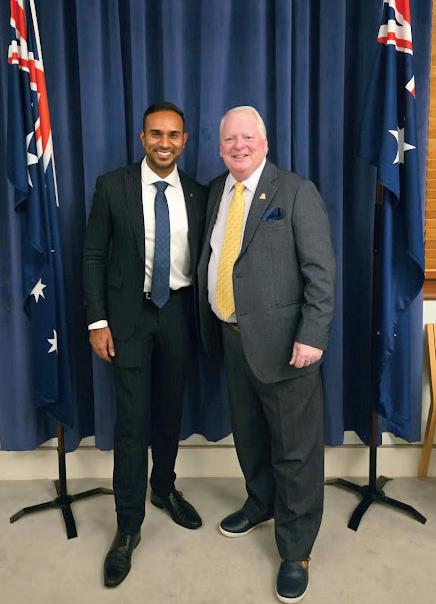
strengthening ARAMA’s growing connections in Canberra. “Being invited to Parliament House is a recognition of just how important the management rights industry is to the Australian economy,” Trevor said.
That recognition extended to state parliament, where ARAMA joined industry peers for the Queensland Tourism Industry Council’s inaugural Tourism in the House event at Queensland Parliament.
Held on the Speakers Lawn, the gathering brought together tourism bodies, operators and policymakers to showcase the importance of the visitor economy.
“ARAMA representatives included National President Guy Elliott, board members Karen McMichael Cross, and a host of ARAMA members,” Trevor said.
QTIC CEO Natassia Wheeler thanked ARAMA personally: “Your contribution made a real difference in bringing this event
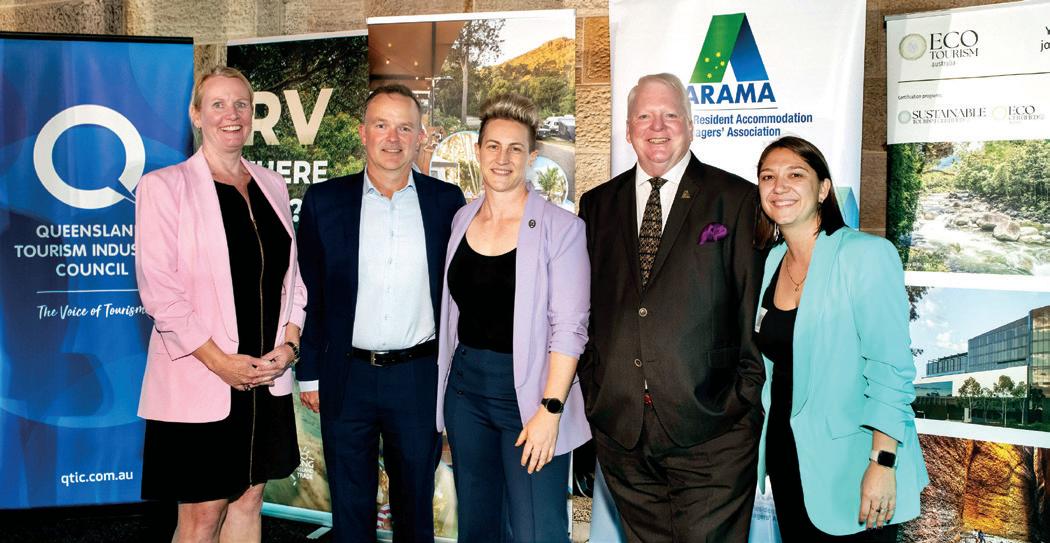
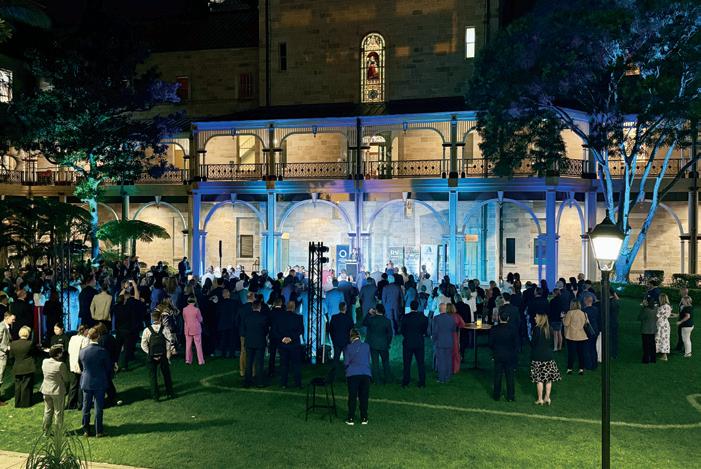
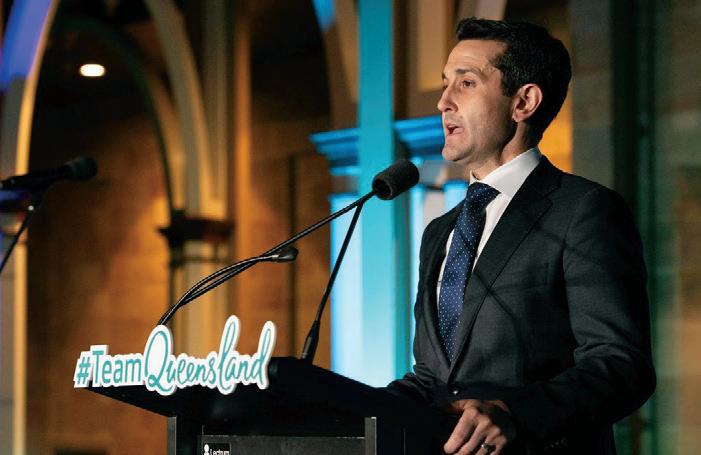
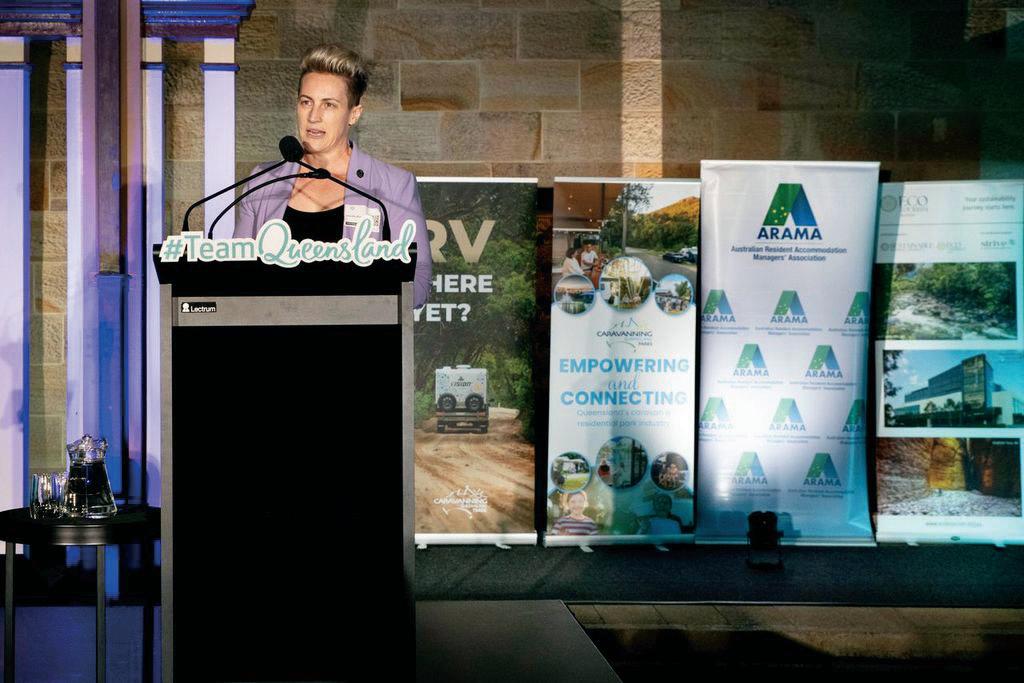

to life… The feedback has already been incredibly positive, and we are confident this event will become a cornerstone in QTIC’s advocacy calendar.”
The sentiment was echoed by ARAMA member, Quartz Legal’s Vanessa Sciortino, who said: “What a fabulous initiative, set against the stunning backdrop of Parliament House. This event brought together the heart of our tourism industry—uniting diverse voices in one beautiful setting, celebrating our tourism industry and looking forward to a vibrant future for Queensland tourism.”
For Trevor and ARAMA, both invitations mark the culmination of years of consistent advocacy and relationship-building. “We are working hard to build strong relationships in both camps,” Trevor said. “The more visible we are, the more we are able to get things done for our members and for the industry as a whole.”
From the halls of Canberra to the lawns of Brisbane, ARAMA is ensuring the management rights industry is not only heard but recognised as a vital contributor to Australia’s tourism and accommodation landscape.

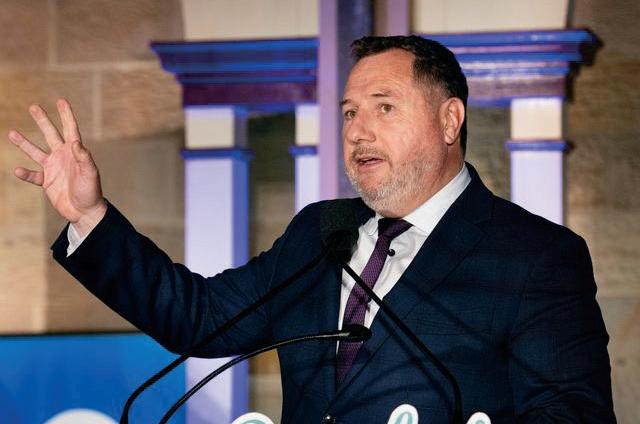
The event brought together a fantastic group of people, with plenty of laughs, engaging conversations, and meaningful connections.
It’s always a reminder that business is made better when combined with genuine connection (and a little fun).
A heartfelt thank you to Colleen Wessling and OPAT for hosting such a delightful afternoon.
Your support and commitment to community is truly appreciated.
The next Brisbane luncheon will be held in October.
For more details or to register, visit: www.womenin.com.au
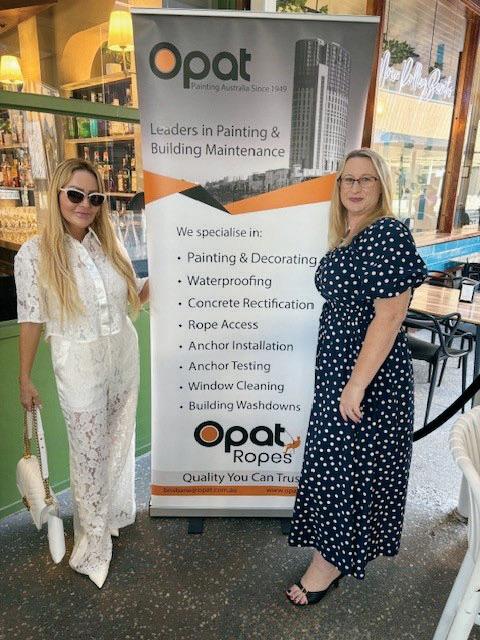
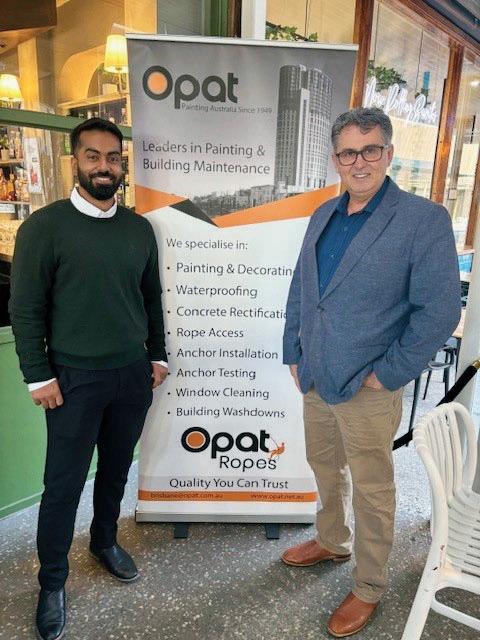
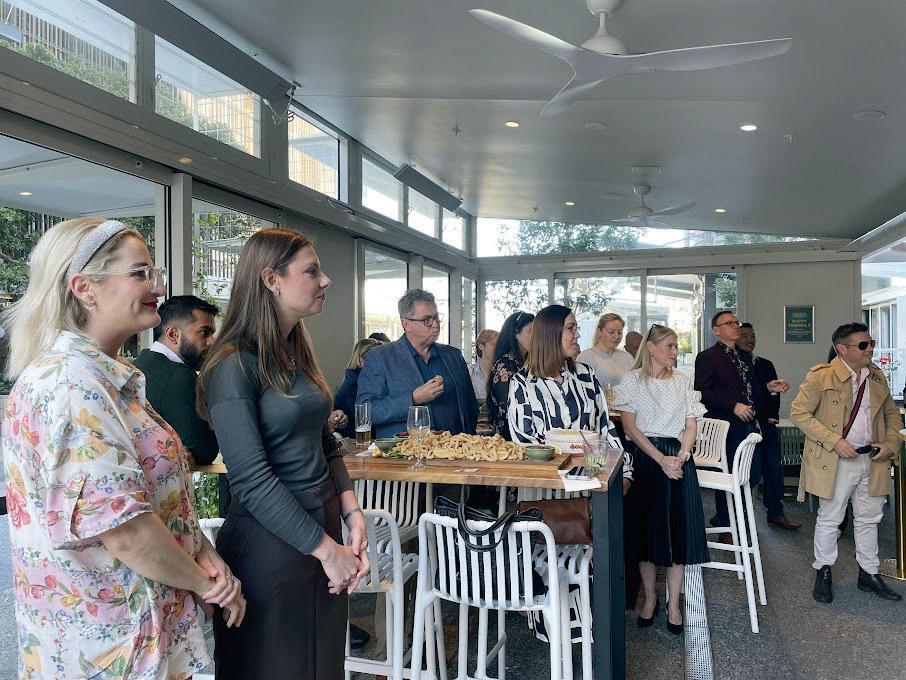


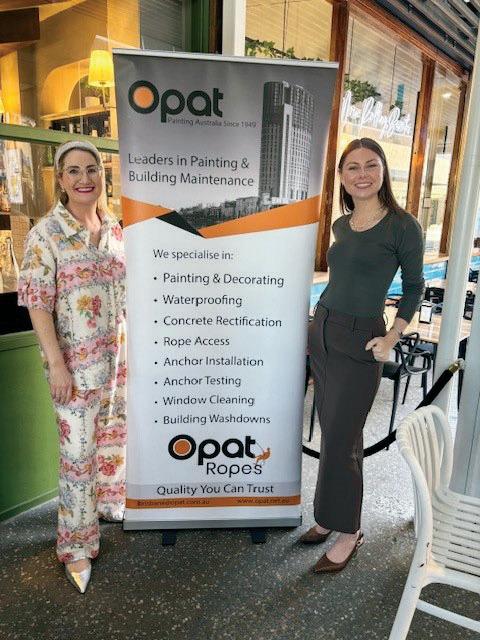
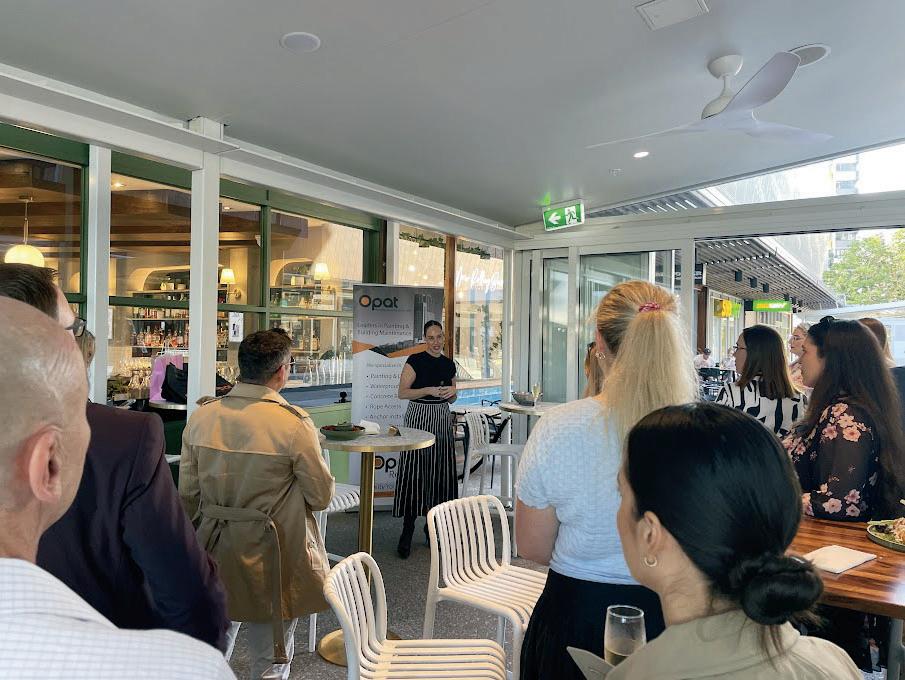
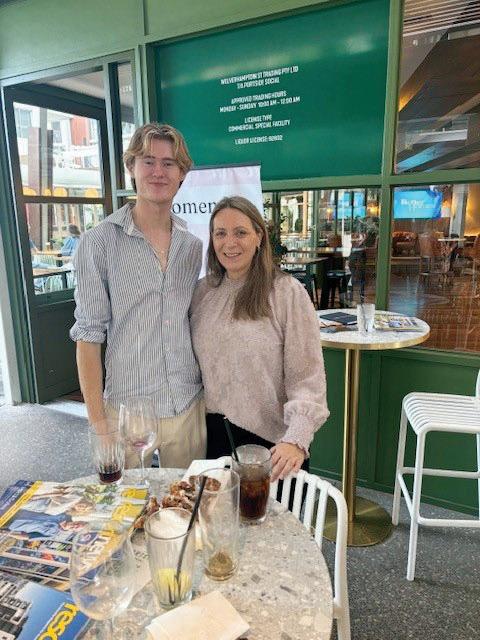
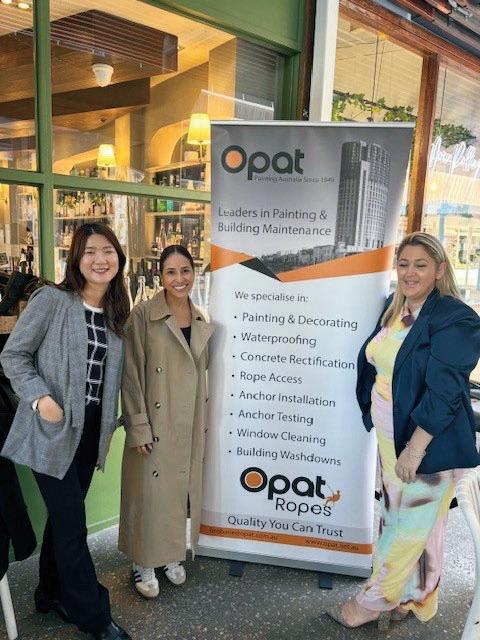
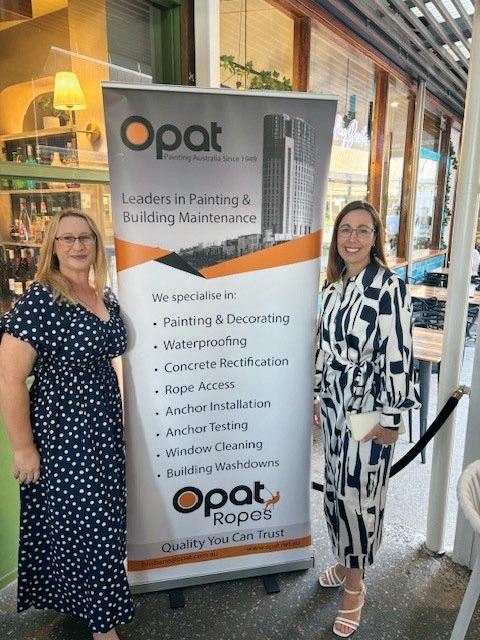
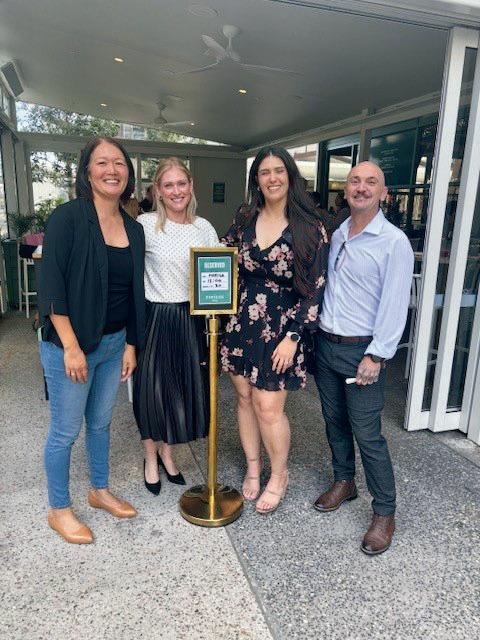

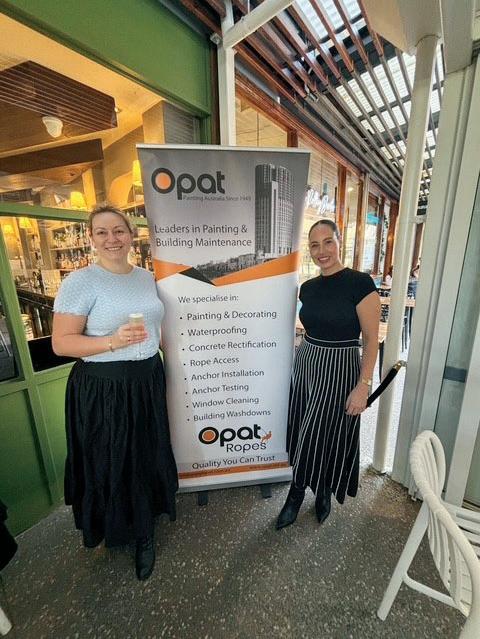
The Accommodation Industry Golf Day was held at Maroochy River Golf Club on Friday, August 15, with players enjoying perfect weather and excellent course conditions.
The competition for the day was an Elimination Scramble, a four-person Ambrose format where all team members tee off each hole and the team then selects which shot to play.
The next Golf Day will be held in Brisbane at Oxley Golf Club on Thursday, October 16, with a shotgun start at 12.30pm. The competition will be a Four-Player Team Stableford Wine Skins, with four bottles of wine up for grabs on all 18 holes.
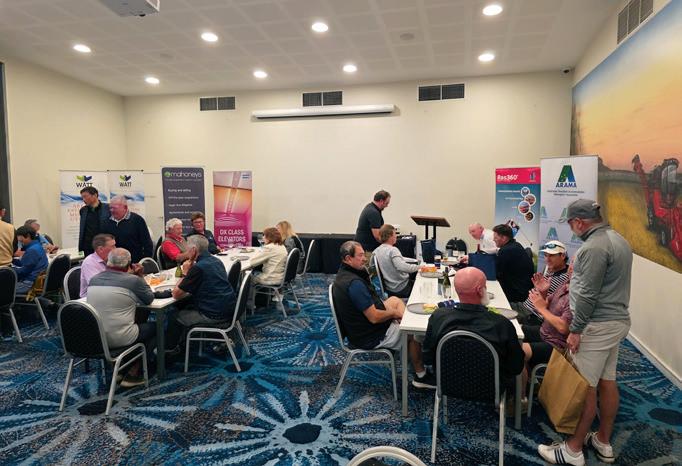
A big thank you goes to all the sponsors, whose support ensures the golf series continues to deliver great days out, complete with special competitions and pin prizes.


Results:


































1st Place: Kone Elevators Team: Sam Daley, John Christopher, Brendan Turnbull and Gareth Hewson.

























2nd Place: Platinum Electrical Team: Ryan Hardiker, Dave Ekberg, Peter Collins and Steve Ascough.




























3rd Place: Ras360 Team: Nathan Eades, Malcolm O’Farrell, Kevin Tsai and Matthew Williscroft.

A special mention goes to Tony Blenkinsop, who scored a spectacular hole-in-one on the 16th hole—congratulations Tony!




















Knowledge Bank Australia, a collective of professionals passionate about social responsibility and community service, hosted its Charity Gala Night at The Star Brisbane’s Queen’s Wharf Event Centre. The Gala Night attracted over 550 guests and successfully raised $213,901 in support of four charitable organisations, demonstrating the strength and generosity of Brisbane’s multicultural community.
This year’s theme, “Casino Royale”, transformed the venue into a dazzling Las Vegas-inspired sett ing. Guests dressed in elegant evening
wear posed with a robot photographer and AI photo booth sponsored by Star Ocean Group, while roulette wheels, giant slot machine projections, and custom-designed playing cards featuring caricatures of renowned professionals added a creative flair.
The night opened with a vibrant Las Vegas-style dance performance from Strictly Dance, followed by a grand magic show sponsored by Honest Grace Legal, earning thunderous applause. While the ambience echoed the thrill of a casino, the true purpose of the evening was to channel excitement into meaningful charitable giving.
Event founder Paul Shih, who underwent heart surgery just three months ago, expressed gratitude for the opportunity
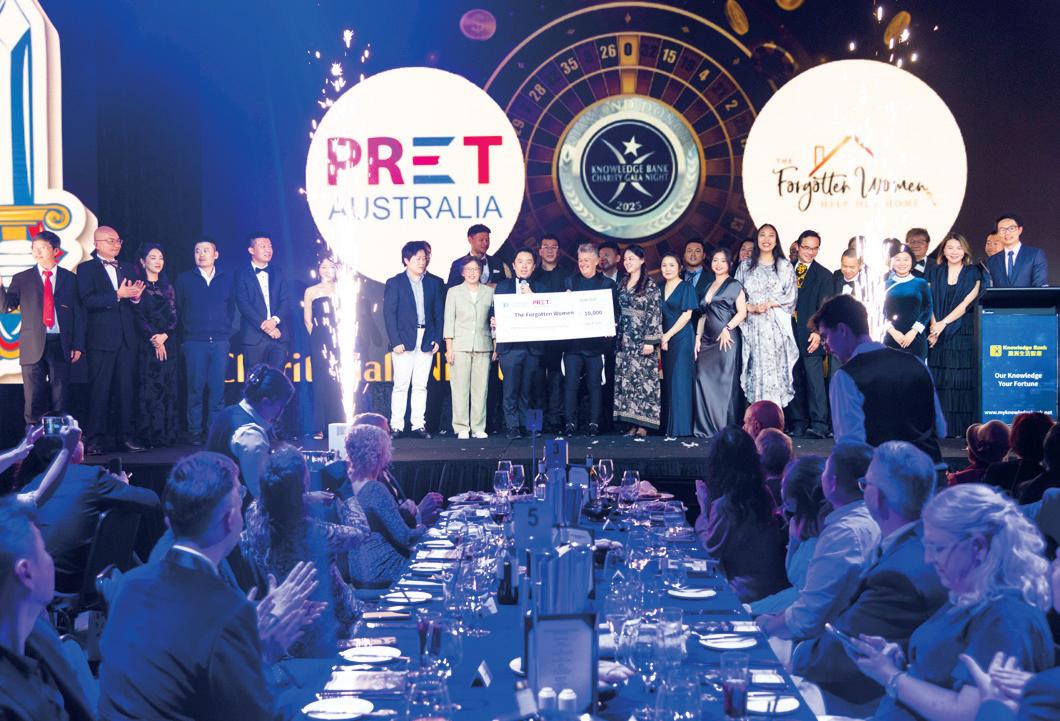
to continue his life’s mission through charity. With humour, he referred to himself as a “charity playboy,” noting his wish to introduce diff erent organisations to supporters at each gala night.
A highlight of the evening was the involvement of the next generation: Paul’s children and their peers, dressed formally,
volunteered as MCs, ushers and raffle ticket sellers, bringing youthful energy and warmth to the gala. Performances included a cello recital by Harmonie International, dance showcase by Strictly Dance, and a moving solo performance by Mia Huang, all highlighting the younger generation’s commitment to community service.
Property Bridge and team are honoured to receive the ‘Sales Brokerage of the Year’ award for 2024, as presented by the Australian Resident Accommodation Managers Association (ARAMA).
We are a proud ARAMA supporter, and recognise the immense contribution in supporting, educating and advocating for the Management Rights industry.
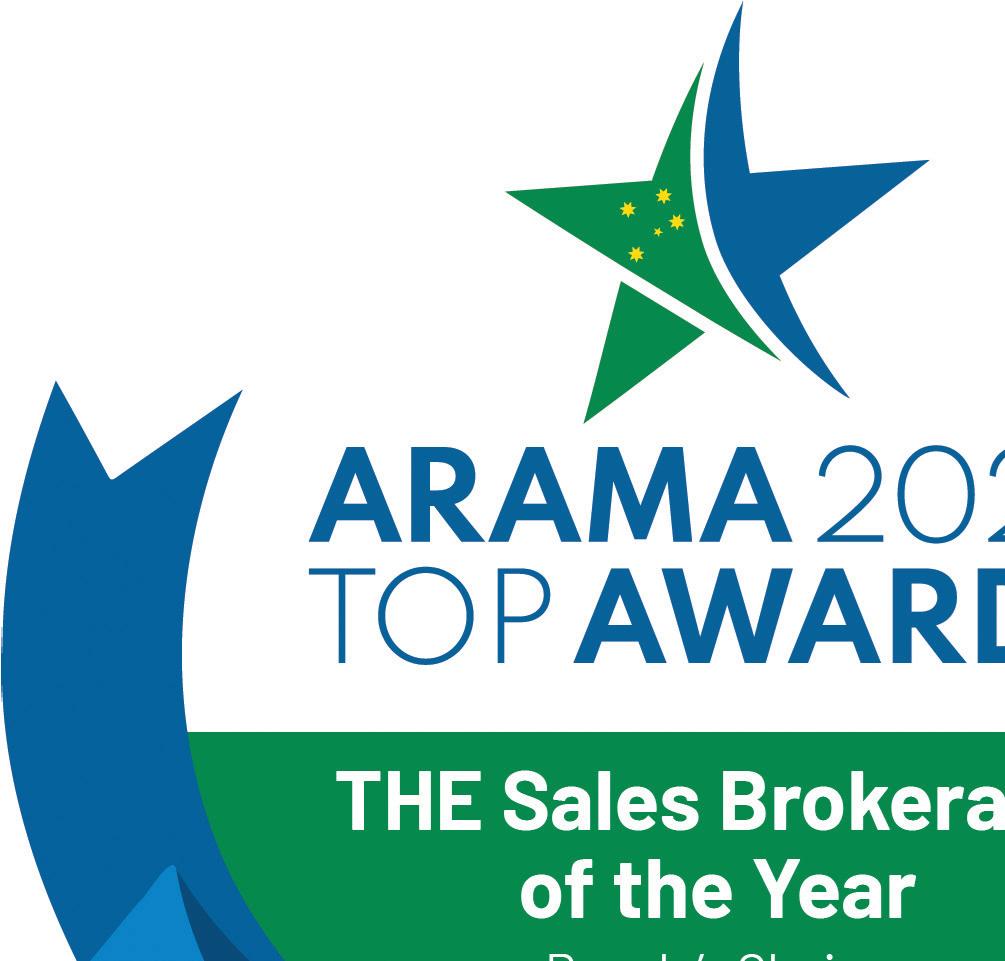


Be our partner in success and contact us now should you be entering the market to sell or purchase Management Rights

Funds raised from the evening were distributed to four charitable organisations:
Lord Mayor’s Charitable Trust: Dedicated to supporting vulnerable groups across Brisbane. The evening saw a $20,000 donation from YFG Shopping Centres, followed by $10,000 from George Sha of BALANZ Finance,
applauded by the Lord Mayor and Lady Mayoress.
Mater Foundation: Supporting medical research and patient care. This year honoured Sister Angela Mary, celebrating her 100th birthday after a lifetime of service. Major contributions included GoldenWater Finance, Harmonie International, Paul Shih’s 94-year-old grandmother Mrs Shih Huang Liyinand PRET Australia students and trainers. In the highlight auction, Mr

Lennon Lin bid $20,000 for the opportunity to enjoy morning tea with Sister Angela Mary.
RBWH Foundation (Royal Brisbane & Women’s Hospital): Celebrating its 40th anniversary in 2025, the foundation focuses on health and medical research. Michael Song, CEO of Song Group, together with Cllix Hotels and Apartments, made a significant contribution, alongside CEL Group, BB Group, and Ray
White Forest Lake. Guests also pledged to attend the foundation’s upcoming 40th Anniversary Gala.
The Forgotten Women: Supporting homeless older women with safe housing and essential services, this was the first year the organisation benefited from the gala. PRET Australia students donated $10,000, and 100 percent of raffle ticket proceeds were directed to the cause.
• Traineeships
• Small face to face classes
• Live Zoom classes
• Delivered in English and Mandarin
• Flexi Learning at own pace
• Recognition of Prior Learning
Agent | Resident Letting Agent
• Friendly, Experienced Trainers
• Practical Courses for MR Industry
• Qualifications issued promptly
• Competitively Priced
• Exclusive Online Support Group

Knowledge Bank Australia will also participate in the “Live Like Her Challenge” on September 4, spending a night sleeping in cars to raise further awareness and funds.
Corporate supporters, including: EVA Air, Mine Home, and ROBAM Appliances donated premium prizes for auctions and raffles. Together



with proceeds from earlier dragon fruit fundraising sale, this year’s fundraising eff orts surpassed $200,000.
Beyond charity, Knowledge Bank Australia is committed to sharing professional knowledge through regular seminars and events. Co-Founder Paul Shih emphasised: “Our mission goes beyond knowledge sharing

— we want to ensure that the spirit of giving is passed on from one generation to the next.”
To thank the real estate professionals who attended, PRET Australia will provide each participant with a complimentary one-unit CPD training session, encouraging members to apply their learning in service of the community.
During the evening, the Lord Mayor and Lady Mayoress presented Paul Shih with the
Brisbane City Pin of Honour for his contributions to community service. The Mater Foundation also recognised him as its Community Hero of the Month, with Sister Angela Mary presenting him the foundation’s inaugural medal. Paul humbly responded: “I am only casting a small stone to create ripples. My hope is that more people will be inspired to join the journey of giving.”








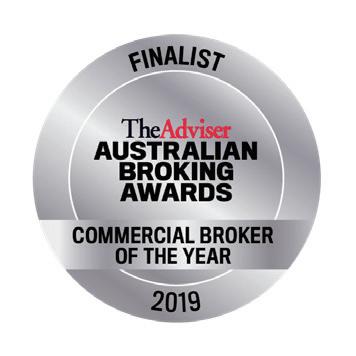
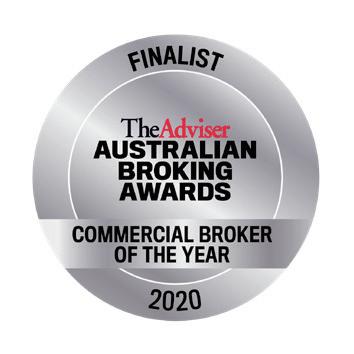
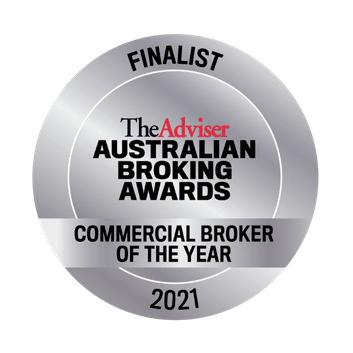




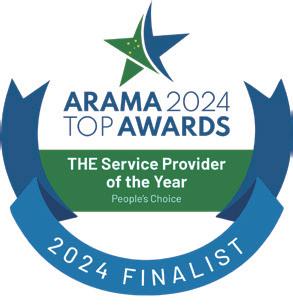
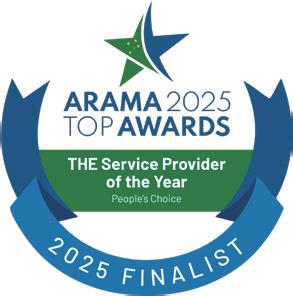







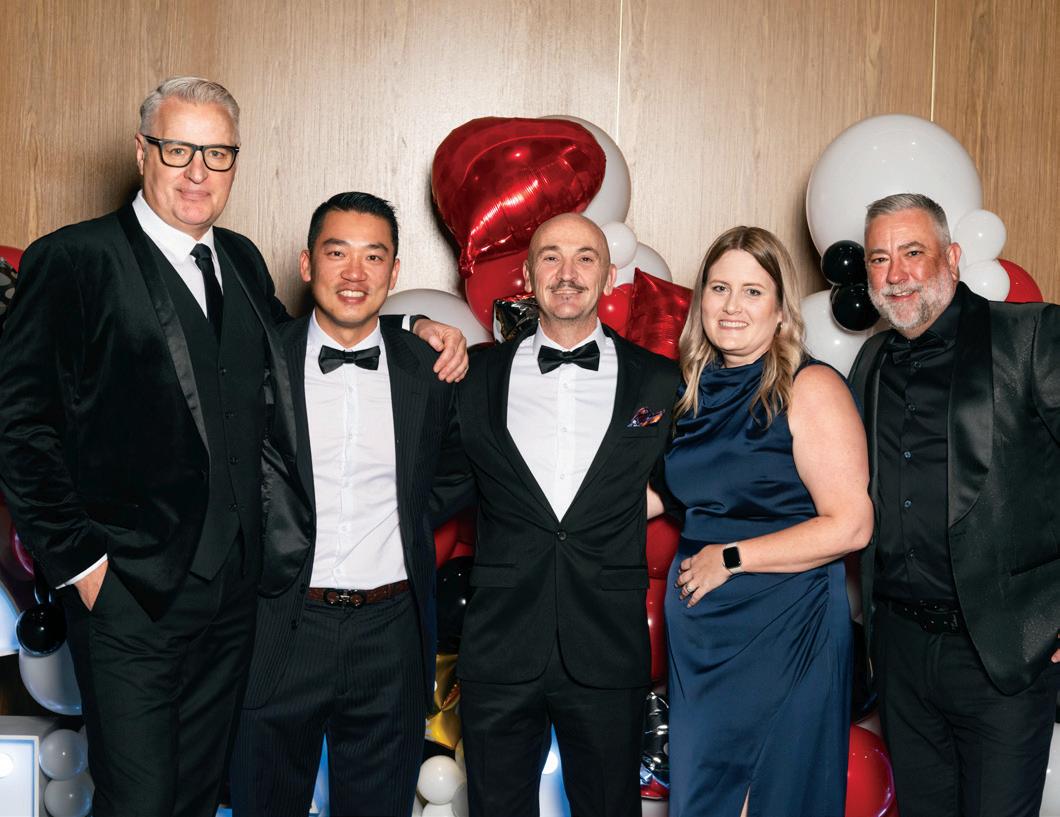









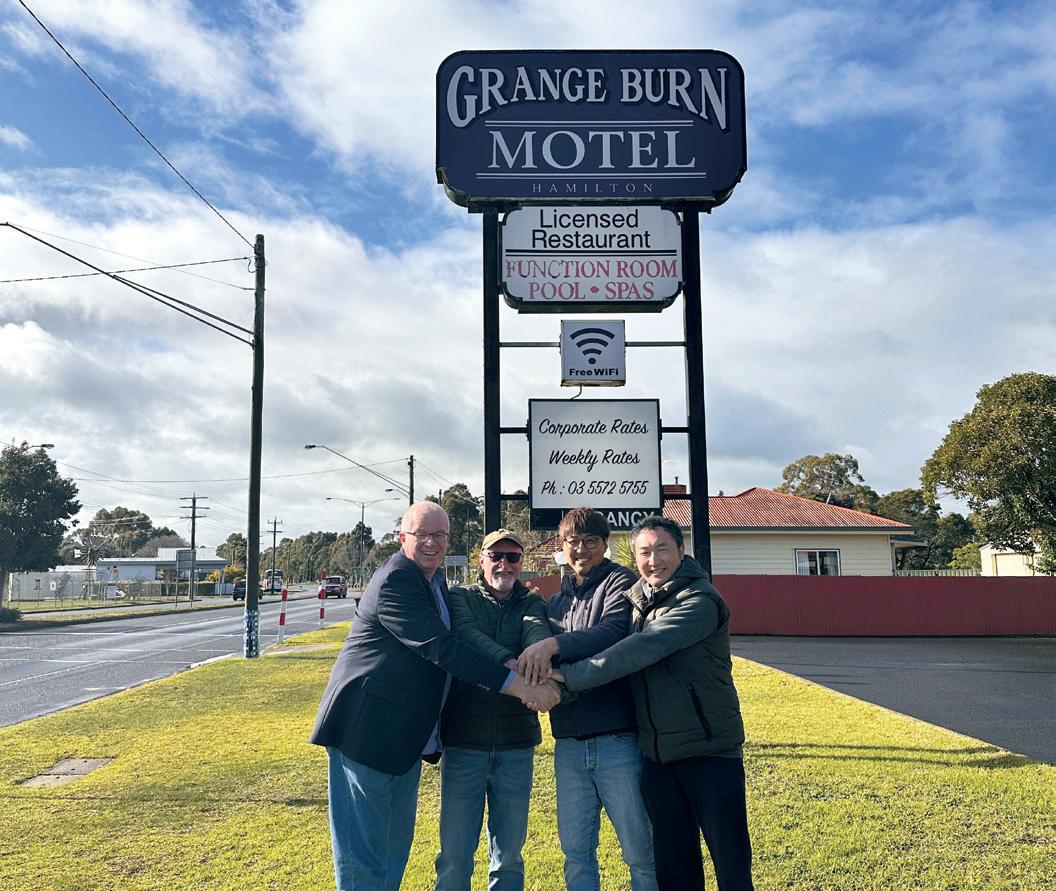
Exciting times with an upgrade happening, new qualified management and a desire to dramatically grow the business. Having a strong NZ Heritage, the team already have another motel in Australia to complement other experience and holdings. With a huge upside, the 31-room motel facility will see a reopening of the restaurant, conference centre and wedding facility. The Hamilton area will benefi t from the additional upgrades / tourism / service and updated off ering. We wish them well and welcome to the area.

Simpson Quinn Lawyers is a long established commercial Management Rights transactions We practice in all areas of Management Rights including:

• Sales and Purchases of Management Rights
• Top ups and variations of Management and Letting Agreements
Contact: 07 5443 5266 simpsonquinn.com.au reception@simpsonquinn.com.au
• Advice on Management and Letting Agreements and Body Corporate Issues
• Body Corporate Disputes and Dispute Resolution, including the adjudication of disputes and appeals




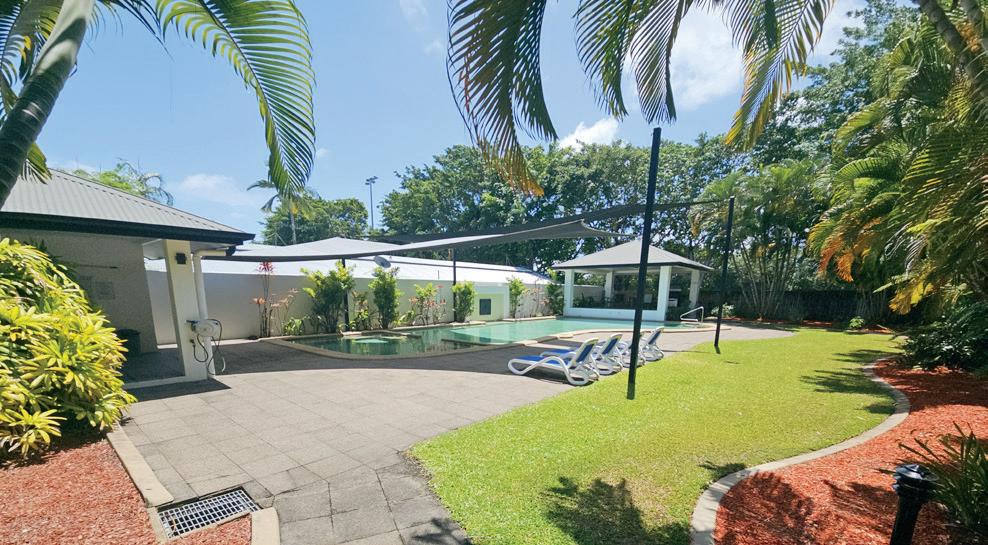






Asking Price: $850,000 Net Profit: $106,000
Antonio Curulli 0488 030 853
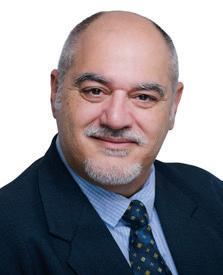
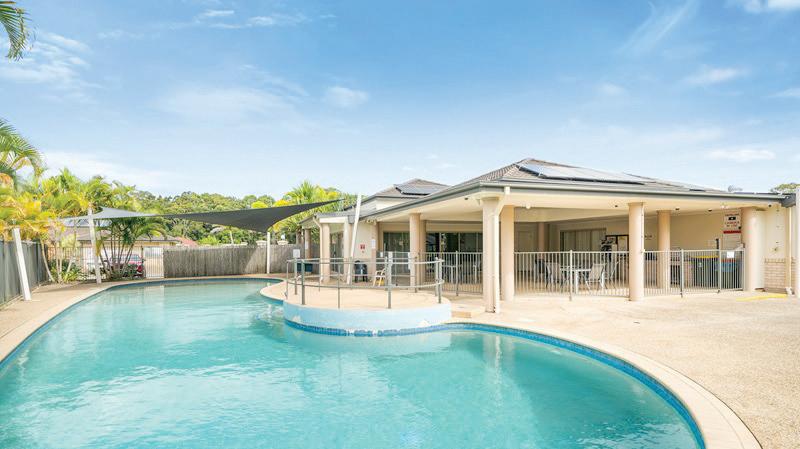
Permanent Management Rights
Asking Price: $3,360,000
Net Profit: $453,620
Gerard Dixon 0433 617 515

Permanent Management Rights
Asking Price: $3,755,000
Profit: $568,053
Phil Trimble 0418 478 966


Permanent Management Rights ID: 9133
Asking Price: $1,638,000 Net Profit: $163,861
Bill He 0439 288 960






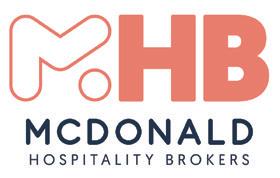



















Alex Barker-Ré LREA
0414 835 128
alex@cbmr.com.au
August 2025 marks a very special month for us at Calvin Bailey Management Rights (CBMR). Not only do we celebrate 20+ years in the Management Rights Sales Industry, but we’re also proud to announce the opening of our new o ice on the beautiful Sunshine Coast!
We’re thrilled to share that Alex Barker-Ré will be heading up the Sunshine Coast division. With over 30 years of hands-on experience in both operating and selling management rights – from Port Douglas to the Gold Coast – Alex brings deep industry knowledge and a passion for delivering outstanding service. Since joining CBMR in 2016, Alex has continued to build on his reputation for excellence, with MLR and sales experience spanning three decades
This expansion is a natural evolution of our commitment to providing exceptional, personal service to both vendors and purchasers. Our Sunshine Coast o ice will uphold the same high standards and values that have earned us the trust of so many clients over the years.
With Alex leading our Sunshine Coast operations, you’re choosing a seasoned professional whose track record and integrity speak volumes. Whether you’re considering selling or just seeking advice on positioning your business, call 0414 835 128 or email alex@cbmr.com.au. Alex is available for a confidential discussion.
At CBMR, we’re proud of our past and even more excited for the future We look forward to being your trusted Partner in Success
Regards,
At Calvin Bailey Management Rights, we draw heavily on our direct experience as former management rights operators. We understand the challenges, the nuances, and the opportunities involved. Our service is always:
One-on-one meetings with buyers and sellers to ensure all parties make informed, confident decisions.
From listing, to o er, to settlement, we o er tailored marketing campaigns and a hands-on approach through contract preparation, negotiation and due diligence.

We provide guidance for new managers, including marketing strategies, system advice, and relief management support.
Every management rights business is unique. We ensure full discretion throughout every stage of the process. Our
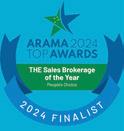
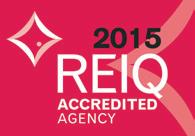
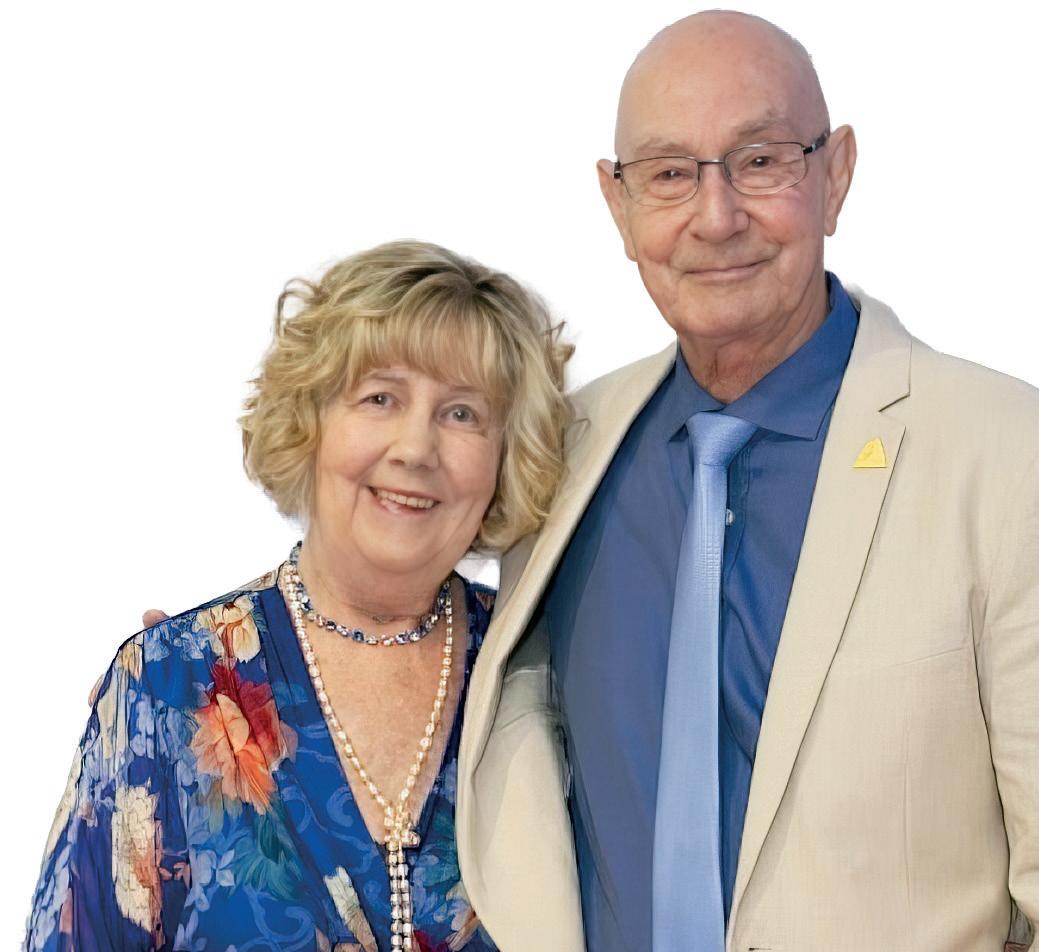



By Mandy Clarke, Editor
In 2025, Calvin Bailey Management Rights (CBMR) is celebrating much more than a business milestone. It marks 20 years in management rights sales and 30 years since Calvin and Helen Bailey first stepped into the industry with their inaugural purchase in Port Douglas in 1995.
Now with partner Alex Barker-Re expanding into the Sunshine Coast, the legacy of CBMR continues.
“Marking 20 years in management rights sales means everything to us,” Calvin reflects. “We have been part of this fantastic industry, made countless friends, survived the storms, literally, and helped so many people into a lifestyle and business they can be proud of.”
This anniversary also heralds a bold new chapter: the launch of CBMR Sunshine Coast, headed by long-time partner Alex Barker-Ré. Calvin describes Alex as “an inspiration… motivated, a talented communicator, a caring family man, and with a wicked sense of humour.”






Alex Barker-Ré
As Alex relocates south, CBMR is preparing to welcome a new broker in North Queensland, ensuring both regions continue to thrive.
For Alex, the move feels like fate. After more than two decades in the North Queensland management rights industry, he says the stars have aligned.
“I have always had a desire to relocate to a cooler climate, particularly the stunning Sunshine Coast,” Alex says.
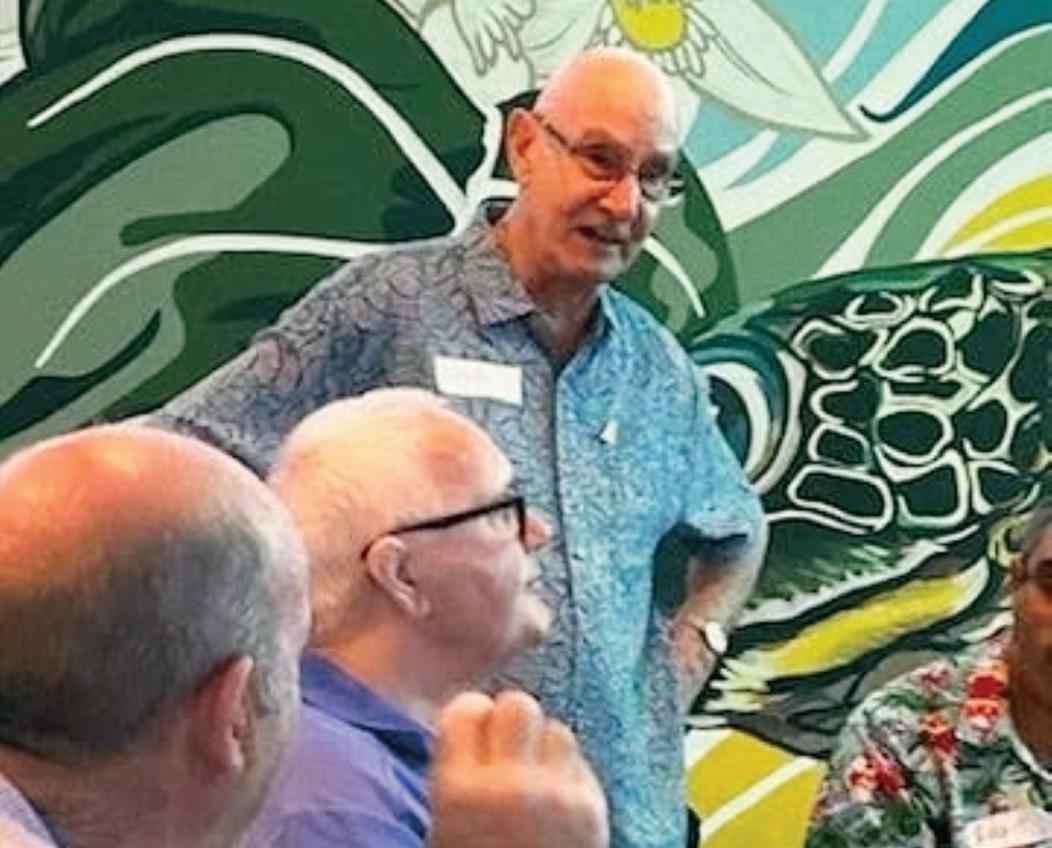
“And with my eldest son moving south to start university, the timing could not be more perfect. The transition has come together seamlessly, and I am excited for what lies ahead in both life and business.”
Alex’s industry experience is formidable. From 2001 to 2011, he served as North Queensland Sales Director for Venz Management Rights Specialists, overseeing end-to-end sales of countless management rights businesses and associated properties worth tens of millions of dollars. In 2017, he joined CBMR, a decision he describes as “working with a respected industry leader and genuinely great bloke.”
Beyond sales, Alex has also walked the talk. Since 2001, he has owned and managed eight different management rights properties across Queensland, from the Gold Coast to Port Douglas and Cairns. This firsthand experience in permanent letting, holiday letting and offthe-plan projects has given him a rare depth of understanding.



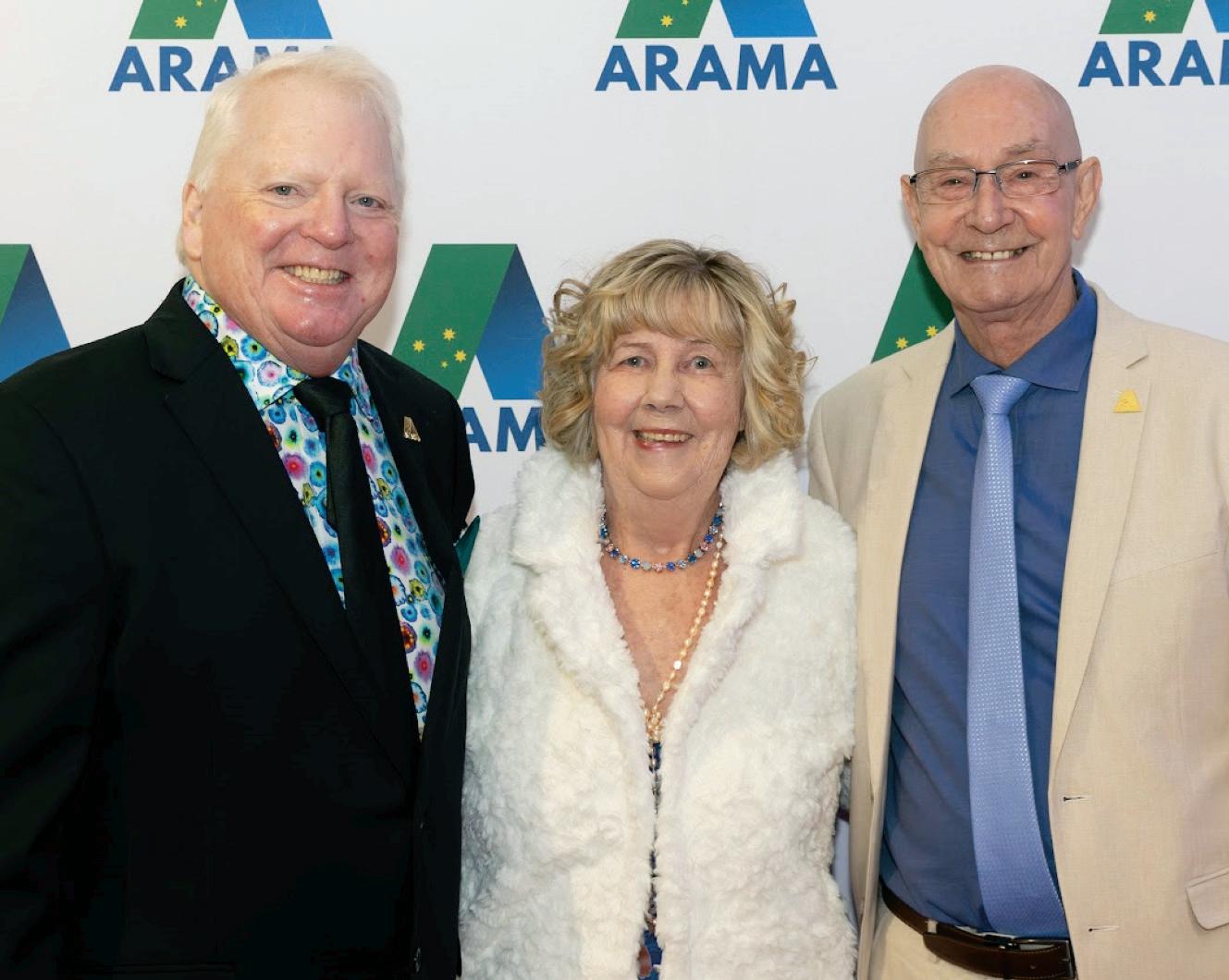
“As I shift my base to the Sunshine Coast, my commitment to the management rights industry remains stronger than ever,” Alex says. “Whether you are buying, selling or simply seeking advice, I bring decades of experience, honest insights and a passion for this unique lifestyle-business hybrid.”
Looking back, Calvin and Helen remember those early days in Port Douglas fondly. They quickly immersed themselves in the tourism community, with Helen serving as Secretary of Tourism Palm Cove for several years. She created marketing materials for ATE and other travel shows.
By 1998, they were already ahead of the curve, with one of Palm Cove’s first live resort websites online before construction of their second management rights, Oasis at Palm Cove, was even complete.
CBMR itself was born out of necessity. When Property Pacific unexpectedly closed its management rights sales division
in 2017, Calvin and Helen had only a week to respond. They moved fast, registering a business name, securing an ABN, producing marketing collateral and business cards, and launching a website. It was a remarkable achievement on a modest budget, and Calvin credits Helen’s resourcefulness and creativity for shaping the CBMR brand into a respected competitor in the industry.
Since rebranding in 2017, CBMR has exceeded its sales targets every year for eight consecutive years.
In 2023, Calvin was honoured as a Fellow Member of the REIQ, and CBMR was named a finalist in the ARAMA Top Awards for both Broker of the Year and Brokerage of the Year in 2023, 2024 and 2025.
One of the business’s defining strengths has been diversification. Under Alex’s guidance, CBMR successfully introduced apartment sales to investor buyers within MLR complexes, a move designed to support management rights owners and help maintain healthy letting pools.
The management rights landscape in North Queensland has evolved dramatically since Calvin and Helen first entered the market. The early 2000s brought a surge of new developments across Tropical North Queensland. CBMR played a pivotal role, working alongside developers to provide financial projections, structure models and to source capable managers ready to open their doors.









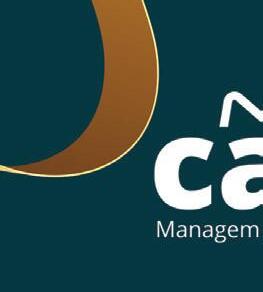
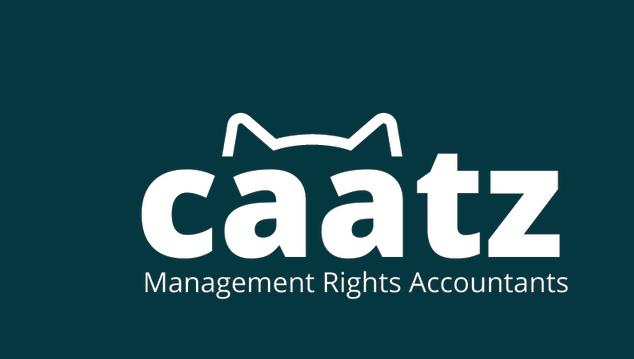

The post-COVID years brought new dynamics. Multipliers in the region rose to four or five times between 2021 and 2023, before settling back to three to four times in 2024 as economic uncertainty tempered confidence. Buyers also began to change. Business only sales became more common, often because of soaring real estate prices that outstripped the value of the business.
The traditional “Mum and Dad” operators, once the backbone of the industry, have gradually given way to partnerships, corporates and extended families. At the same time, tenures have lengthened, with managers now typically holding their properties for six to ten years, compared with the three-tofive-year average of the past.
Through all these shifts, Calvin says one principle has never changed: preparation is everything. Sellers need to be market-ready, with agreements kept current, letting terms topped up to the maximum, profit and loss statements prepared by their accountant, a recent valuation in hand, professional
photography completed, and all documentation for both the business and the manager’s apartment organised and ready for inspection. For newcomers, his advice is simple. “It is a rewarding and profitable industry. Be a people person, collaborate with all stakeholders, join ARAMA for support, and be ready to work hard when it counts.”
Beyond the numbers, Calvin and Helen treasure the human stories. Calvin recalls guiding Andrea, a young professional with exactly the right skill set, through the purchase of her first management rights. Despite the complexity of the process, she emerged confident and successful.
Then there was what Calvin calls “the perfect storm” sale, a transaction beset by challenges, with both buyer and seller couples separating mid-deal, extreme weather battering the region, illness striking, and even a tragic death along the way. Yet through perseverance, the deal was finalised, and both parties walked away satisfied.




















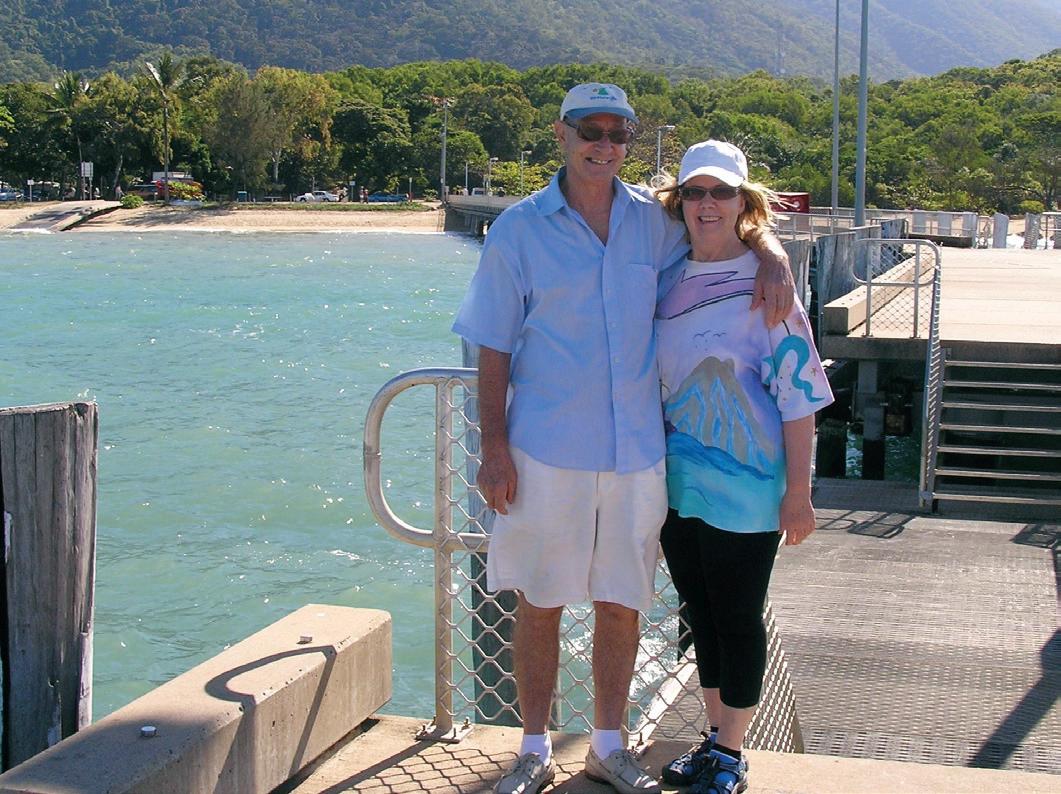
In the next five years, CBMR plans to consolidate its Sunshine Coast operation, continue growing in North Queensland, and implement a strong succession and mentoring program to support the next generation of industry leaders.
A message of gratitude
“To our clients and colleagues past and present, we could not appreciate you more. Many of you
have become friends, and your professionalism, work ethic and passion for this industry inspire us daily,” Calvin and Helen say.
Alongside the timely move to establish CBMR Sunshine Coast, the anniversary celebrations will be intimate yet deeply meaningful, Calvin says. “A special evening meal, a moment to reflect on more than two decades of achievement, and a toast to a future filled with growth, fresh opportunities, and the exciting new chapter that lies ahead.”











































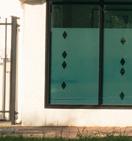




































































































WGC Lawyers has proudly served Cairns and Far North Queensland for more than half a century. Our deep understanding of the region and our clients’ unique needs, built over decades, ensures we deliver with integrity and commitment.
“Congratulations, Calvin, on marking your 20th anniversary. We truly value our
- Rhiannon Saunders Managing Director & Michael Huelin Director

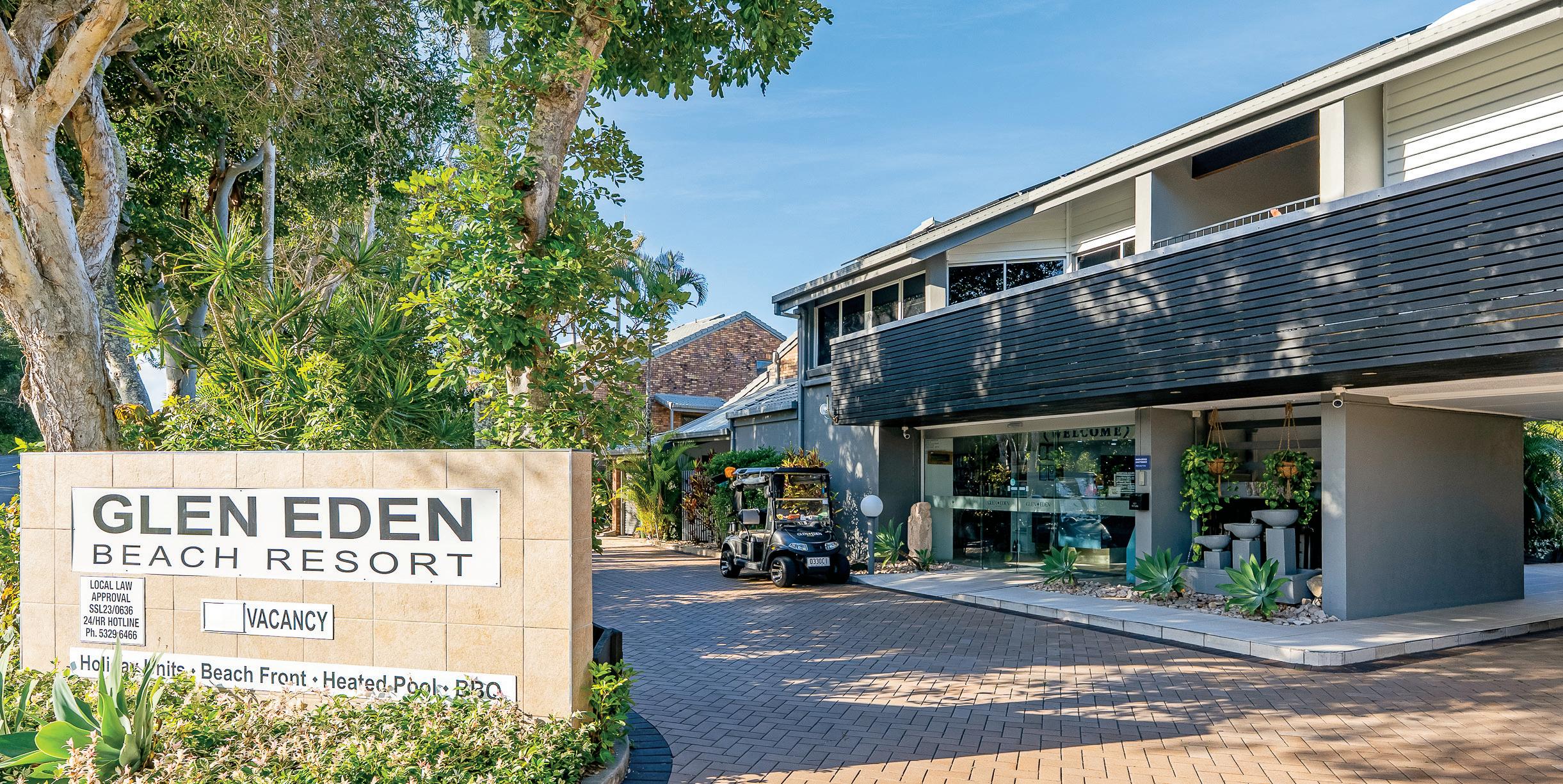
By Mandy Clarke, Editor
In 2023, Hamish and Jess Watt s became the new managers of Glen Eden Beach Resort in Peregian Beach, bringing with them a wealth of experience, a collaborative leadership style and a shared vision for genuine, guestfocused hospitality.
For Hamish, the move marked the next chapter in a career that had already taken him around the world. He spent more than two decades with Hilton Hotels, starting as the youngest executive chef in the brand’s history at just 27 and progressing to general manager roles in the UK, Caribbean, China, Japan and Malaysia. Jess, after years as a dedicated stay-at-home mum,

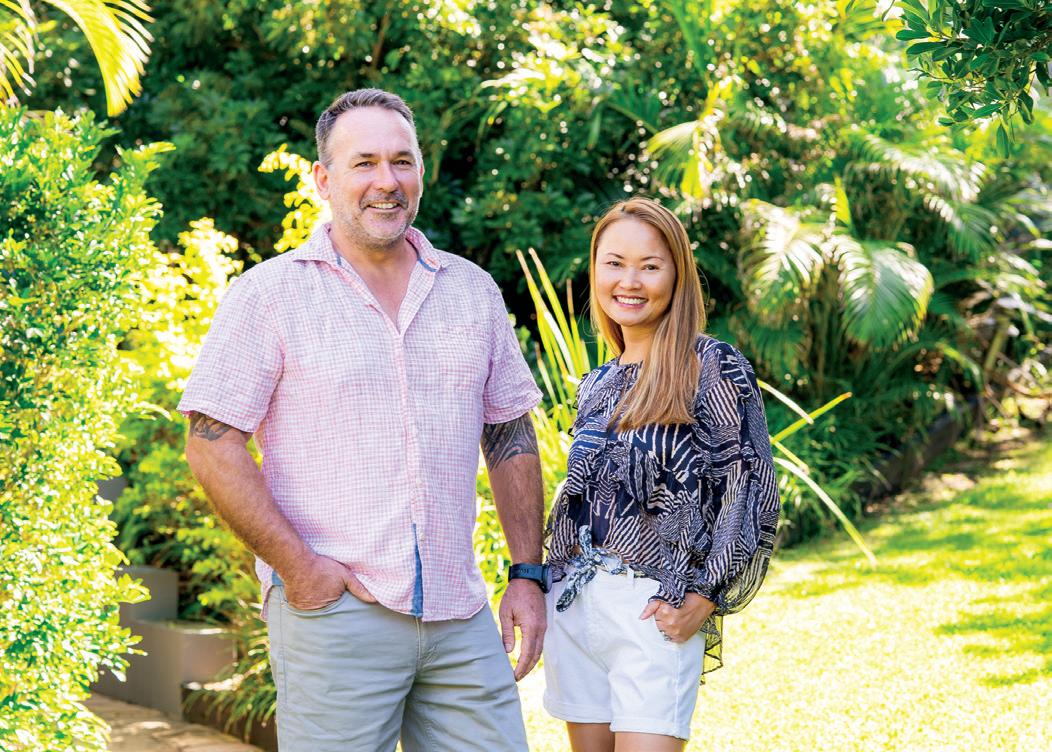
saw the role as an opportunity to return to the workforce and create something meaningful alongside her husband.
It was a steep learning curve.
In their first year, they faced immediate challenges, including

updating systems, refining standards and navigating relationships with owners. At the same time, they were juggling the realities of resort life, from late-night plumbing callouts to launching new marketing campaigns, often
moving between guest services, maintenance coordination, cleaning oversight and social media management in a single day.
“It is fast-paced, and you have to adapt,” Hamish says. “But it’s also incredibly rewarding when you see happy guests walk away already planning their next visit.”
In just over a year, their eff orts have been recognised with some of the industry’s highest honours. Glen Eden was named the 2024 ARAMA Resort Management Team of the Year, won the Small Business Accommodation category at the Sunshine Coast Business Awards and was a finalist for Managers of the Year at the 2024 Tourism Awards.

“Professionally, these awards are validation of the hard work and quality of experience we provide,” says Hamish. “Personally, it is humbling. We have poured our hearts into Glen Eden, and to be recognised as a couple and as business partners is incredibly rewarding.”
With absolute beachfront access and set in lush tropical gardens, Glen Eden Beach Resort off ers 30 spacious townhouses, most available for holiday rental. A small number of permanent residents
and owner-occupiers add to the community feel.
Guests enjoy a heated lagoon pool, tropical landscaping and direct access to a quiet stretch of Peregian Beach. Many call it their “home away from home,” returning for the peaceful location, wellequipped accommodation and warm welcome from the management team.
“We know our return guests by name, and we go above and beyond to make every stay special,” Hamish says.
His own connection runs deep. “As a child, my family visited Glen Eden every

Specialising in management rights and other accommodation business syndicates


September. I remember swimming in the ocean and the pool, gett ing Golden Gaytimes from reception and feeling total freedom. Now I get to create those memories for other families.”
Asked what he is most proud of, Hamish says, “Creating a warm, welcoming environment that keeps guests returning, and being an active part of the Peregian Beach community.”
From the outset, Hamish and Jess committed to upgrading the property and refining operations. They transformed the resort’s original driveway
into a safer, more att ractive entrance, revitalised the gardens and developed a clear plan for future upgrades, including a refurbished reception and refreshed games room in August 2025.
They have also invested in marketing, revamping the website with Social Tap, updating digital content with Cloudwalker Creative and partnering with Smile Marketing to grow their social presence. Attending the Australian Tourism Exchange in Brisbane opened doors to new international trade partners, putt ing Glen Eden on the map for overseas visitors.
A small but dedicated team keeps the resort running seamlessly. Hamish and Jess lead the operations, supported by assistant manager Karren and handyman Rod. “Outsourcing cleaning and working with trusted local tradespeople who respond promptly has been key to maintaining efficient, hassle-free operations,” Hamish explains.
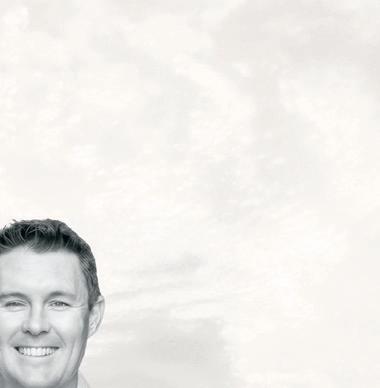


Trent and the Pevy Lawyers team are proud of their association with Hamish & Jess and the Glen Eden Beach Resort team.
Work with the firm that delivers nationwide, industry leading transactional services and advice across all accommodation based business types. Helping hundreds of resident managers and operators each year to acquire, sell, protect and grow their business.
Phone: 07 5562 6111 After Hours: 0412 092 969 www.pevylawyers.com.au








Relationships are central to Glen Eden’s success. “We’ve always believed in investing in people, processes and property,” Hamish says.
He recalls meeting fellow operator Jason Fox at a management rights event in early 2023. “That meeting sparked a friendship that has continued to grow. We still catch up regularly to talk shop and share ideas.”
Luke Cameron, owner of Caprice Coolum and The Beach Retreat Coolum, has also been a valued sounding board. “We patrol together at Coolum Surf Club and often use quieter moments on patrol to chat about business and support each other.”
They value their partnerships with Visit Sunshine Coast and Tourism Noosa. The support of ARAMA, particularly Trevor’s accessibility and insight, has been another cornerstone of their success.
“ARAMA’s training, advocacy and community have been essential,” Hamish says.
Hamish also praises their professional advisers. “Tony Rossiter from Holmans has been a trusted advisor from day one. His expertise has helped us navigate the financial side of the business with confidence.”
Tony returns the sentiment.
“Hamish and Jess are valued clients of Holmans and have been a pleasure to work with since they entered the management rights industry. We wish them continued success into the future.”
Hamish also credits Trent Pevy from Pevy Lawyers for guiding them through the purchase process. “Trent made everything clear and stress-free. His knowledge of management rights meant we felt informed and supported every step of the way.”
Hamish and Jess are active members of the Peregian Beach Business Association, ensuring every guest receives a Village Vibes pocketbook filled with local cafés, boutiques and activities. Partnerships with Epic Ocean Adventures,


Noosa Thriller and Australia Zoo help guests experience the best of the region.
“We love being part of the Noosa LGA, a region rich in natural beauty—from the three UNESCO-recognised biospheres to the pristine Noosa Everglades—all providing a breathtaking backdrop for our guests to enjoy this truly special corner of the world,” says Hamish.
Sustainability is part of their vision. Glen Eden is a Plastic Free Noosa Champion, uses solar power for community areas, harvests rainwater for pools, off ers EV charging for up to 12 vehicles, composts on site and uses refillable amenities in all townhouses. They are working towards Eco-Certification and have digitised their guest compendium to reduce waste.
Hamish says they also want guests to feel part of the eff ort. “We are expanding our digital
compendium to include more about the native reserve and ways visitors can help minimise their environmental impact while enjoying their stay.”
For Hamish, the perfect day at the resort starts with the sound of the ocean and a surf with his sons, followed by a walk along the beach to Peregian Village with Jess for coff ee and a browse through the boutiques. “Back at the resort, I’d relax by the pool, then fire up the BBQ for steaks and cocktails with the family,” he adds.
Away from the resort, Hamish’s guilty pleasure is cooking, a passion rooted in his chef’s background. “I’m always looking for unique and luxurious ingredients to experiment with.” He also enjoys tinkering with his vintage Volkswagens, riding his Harley and dirt biking with his boys.
When asked about the secret to their rapid success, Hamish
believes it comes down to doing the basics exceptionally well. “Personalised guest experiences, attention to detail and a strong, motivated team. We focus on innovation, community partnerships and sustainable practices that today’s travellers value. That is what sets us apart.”
Jess adds, “It is about always listening, being present and making sure guests feel like they matter. That feeling is what brings them back.”
With upgrades on the horizon and a clear commitment to service, Glen Eden Beach Resort is well positioned for continued growth.
“For us, success is owners choosing us over outside agents, guests returning year after year and a team that loves what they do,” Hamish says.
“For anyone starting out, I would say build genuine relationships, stay adaptable and never lose your passion for hospitality.”
Glen Eden Beach Resort is not only a beautiful place to stay but also a testament to what can happen when industry expertise, community connection and genuine hospitality come together under the right leadership.
Hamish and Jess have poured heart, skill and vision into this resort. With a blend of personal connection, community spirit and sustainable thinking they are earning awards, and winning over guests who return year after year.









































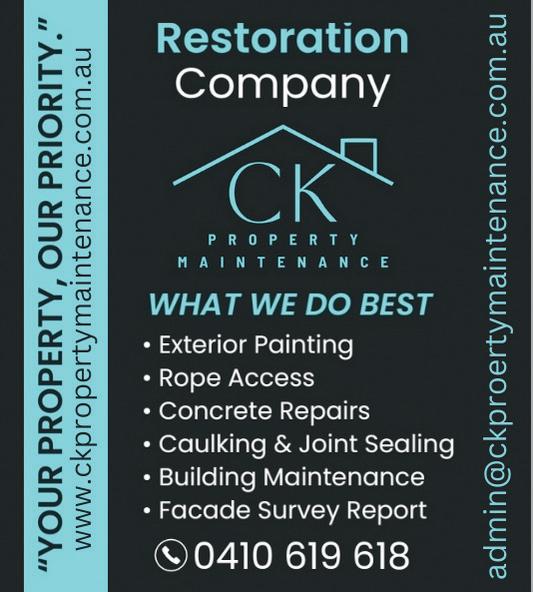






























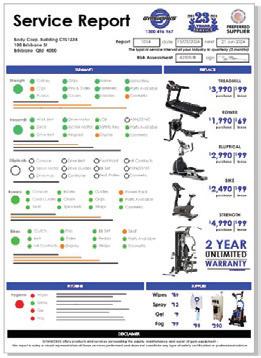

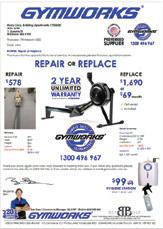





















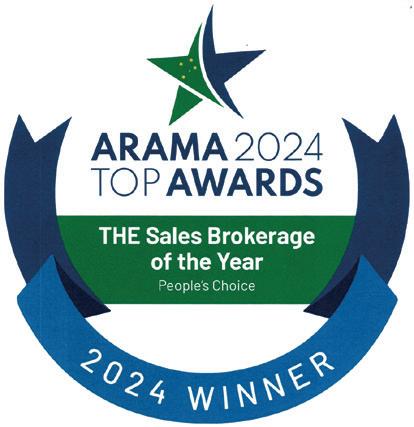



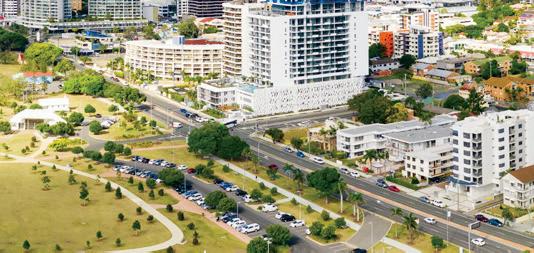













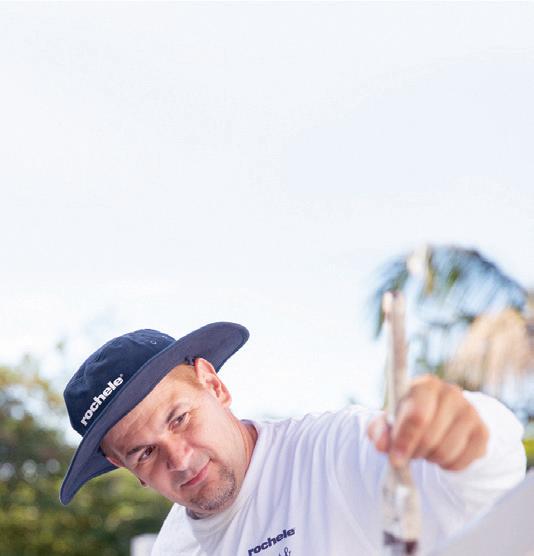


•
•
•
•
•
•
•




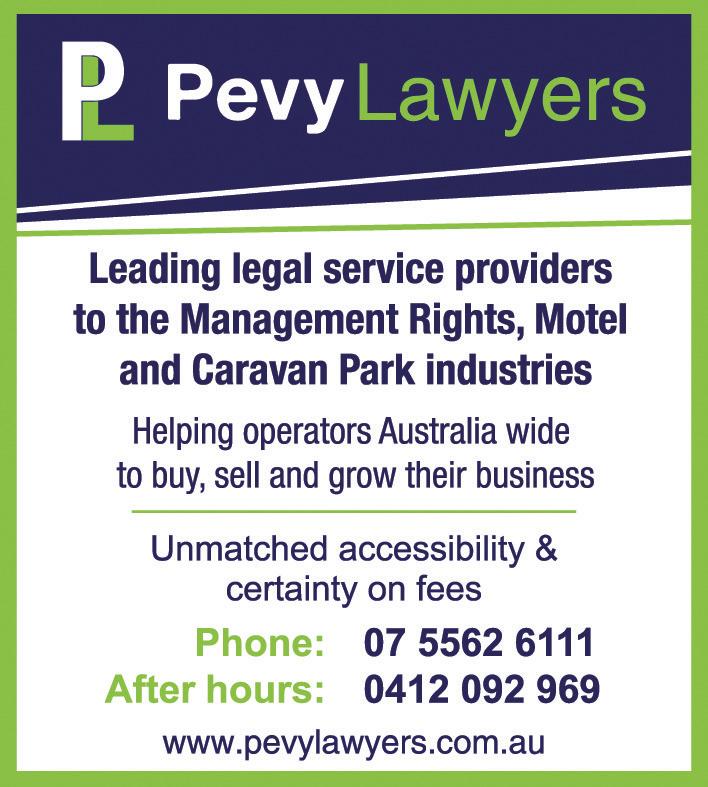























A seamless and comprehensive approach to property care, ensuring that every aspect of your property is taken care of with excellence.
• Painting & Remedial
• Facade Maintenance
• Height Access Solutions
• Facade Installs
• Anchor certifications
• Dilapidation Reports
• Waterproofing
• Complete Garden Maintenance
• Pool Maintenance
• Commercial Cleaning
• Hedging & Trimming
• Pressure Cleaning
• Tree Lopping & Mulching
• Irrigation & Sprinkler
System Repair
• Protective Coatings
• Roof Repaints
• Floor Repaints
• Preventative Maintenance
• Apartment Complex Re-paints
• Body Corporate Projects
• Interior & Exterior

